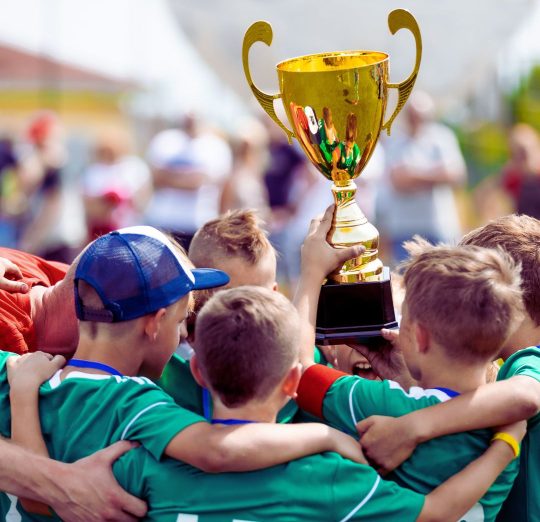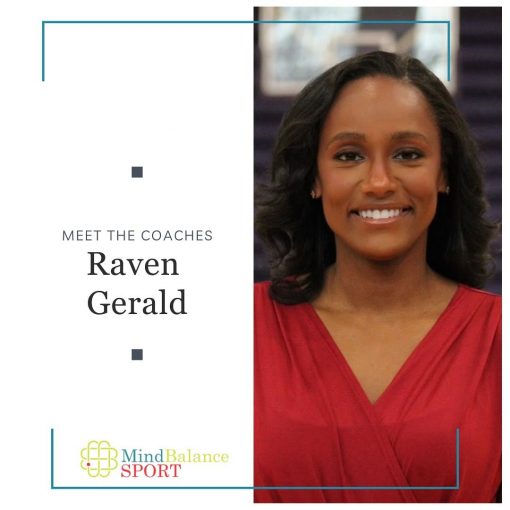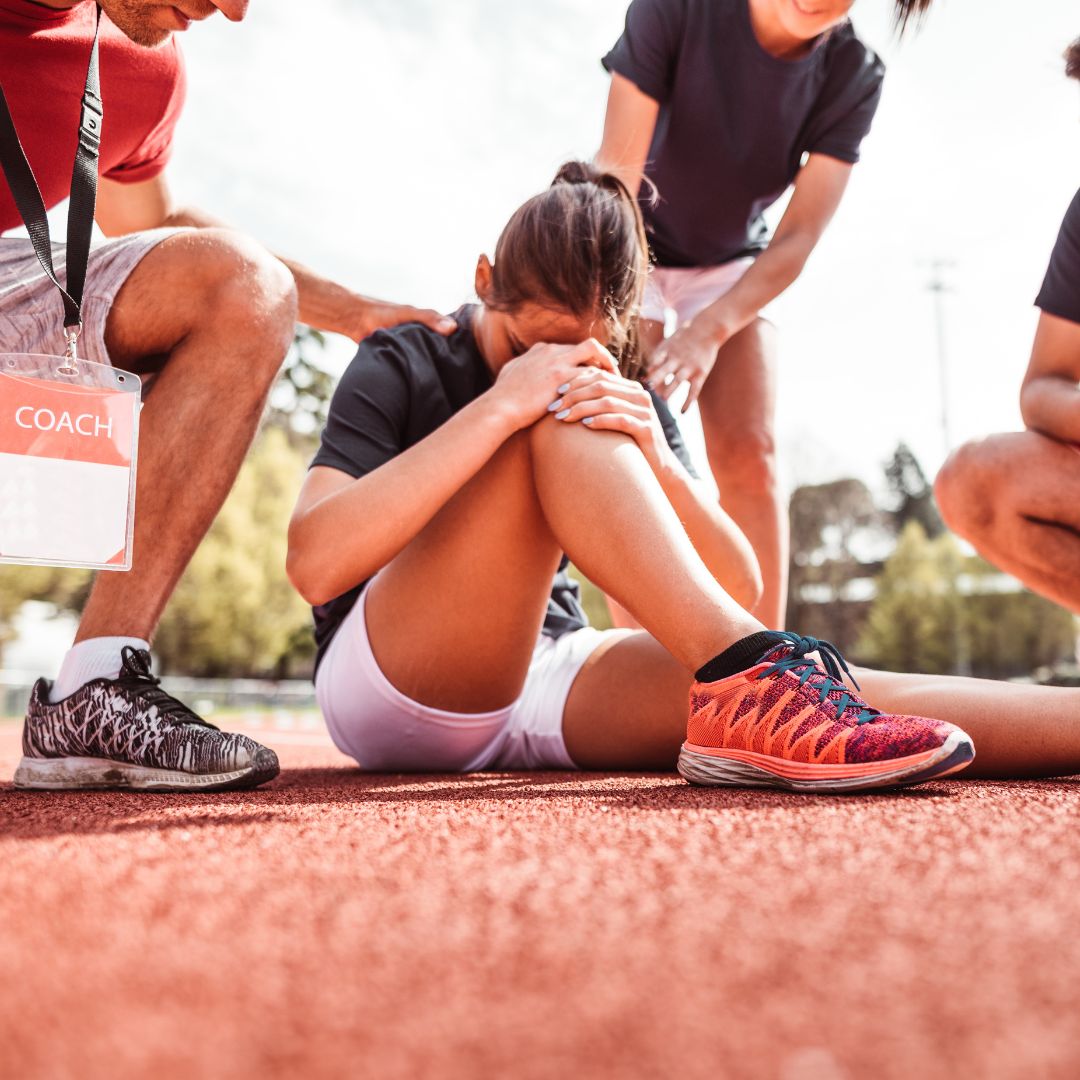Sports Psychologist in Raleigh, NC
We train the other half of the athlete
You want to work on your mental game, but how do you train your brain?
Mental training does not get much media attention, but at MindBalanceSPORT we know it is a game changer. The mental skills you will learn at MindBalanceSPORT are generalizable in the classroom, in sport and in life!
We know that mental skills can be successfully taught, even at an early age.

Our Services
Meet the Team





testimonials
Athlete Stories: Real Comebacks, Real Results

Emma, a high school basketball player, tore her ACL in the middle of her junior season. After surgery, she struggled with self-doubt and fear every time she stepped back on the court. Through sport psychology training, she learned visualization techniques and confidence-building exercises that helped her regain trust in her knee. When she returned for her senior season, she didn’t just play—she led her team to the playoffs.

Carlos, a soccer player, suffered a stress fracture in his foot and had to miss half of his season. Sitting out was mentally tougher than the pain itself. We worked on mental engagement strategies to keep him sharp—studying game film, setting small rehab goals, and using mental imagery to stay ready. When he was finally cleared, his confidence never wavered.

Jordan, a track athlete, strained her hamstring before a major competition. She feared losing speed and falling behind competitors. Instead of focusing on what she couldn’t do, we redirected her energy toward mental preparation, using self-talk and goal setting to keep her confidence strong. When she returned, she set a new personal record.
EXCELLENTTrustindex verifies that the original source of the review is Google. It was a great help to my 14-year-old competitive volleyball player daughter. Raven was great to understand and connect with her from start to end. We will continue with our sessions as needed.Trustindex verifies that the original source of the review is Google. Great results! I’ve loved working with Paula. Our sessions have greatly improved both the physical and mental aspects of my tennis game. I’m playing better and having more fun! Highly recommend!Trustindex verifies that the original source of the review is Google. Our family had a wonderful experience with Paula Castro. We needed some additional confidence in a particular area/sport and Paula helped get us there. We know who to turn to if we need help again. She’s been a Blessing. Thank you, Paula!Trustindex verifies that the original source of the review is Google. I highly recommend MindBalanceSPORT. Our son works with John Howard. John is very caring, positive, and effective at working with teenagers. John is an adept listener and created an individualized plan tailored to our son’s personality. After just a few sessions with John, we noticed a significant improvement in our son’s motivation and mental approach to sports and life in general. Our son looks forward to meeting with John and tells us that he benefits immensely from their connection.Trustindex verifies that the original source of the review is Google. Paula Castro is an outstanding professional on the field. She has helped my daughter improve her confidence, preparation, and thanks to these session she feels more prepared and motivated. Paula takes the time also to share (what she can) and align with us as parents to be on the same page. Strongly recommended!Trustindex verifies that the original source of the review is Google. MineBalanceSPORT has quickly become the area's expert in sports psychology. Their reputation is well deserved given their incredibly thoughtful, scientifically based approaches to treating performance-related conditions, and I have only heard glowing, positive feedback from those who have engaged in their program. I will also add that Drs. Jones and Chirby presented to us (our group comprises of 15+ doctors and masters level clinicans) about their program and impressed us all with their level of expertise and passion for this field. I give them my highest recommendation.Trustindex verifies that the original source of the review is Google. Dr. Jones was beyond helpful to me throughout our time together. If you are an athlete and you need advice or assistance this is the place to come to. She completely changed my outlook and mindset in a time when I needed her most. I look forward to staying in touch with her and am forever thankful for her expertise.Trustindex verifies that the original source of the review is Google. Paula has been a huge help with my daughter Morgan coming off her injury. It’s been 18 months since she’s played basketball and she’s thriving because I know Paula is guiding her the right direction. As a mother, I’m extremely gratefulTrustindex verifies that the original source of the review is Google. If you are looking for Amazing Psychologists who can help support you in your sports performance, you need to call MindBalanceSPORT! Dr. Chirby and her colleagues are a wealth of knowledge, they have so many helpful techniques for mind balance, and they have so much compassion for the communities that they serve! Highly recommend!!!
Recovery
While Everyone Has A Physical Ceiling, There Is No Mental Ceiling.
Exploring the Role of Sports Psychologists in Raleigh, NC in Athlete Motivation and Success
Sport is more than just physical ability. It requires a significant mental component, and understanding what drives an athlete can be essential to their success. Athletes are motivated by various factors to become champions, and it is these driving forces that often determine whether they reach the top of their game or not.
One of the primary motivators for athletes is the innate desire to win. This competitive nature drives them to train harder, push their boundaries, and continually strive for better performance. They are often driven by the thrill of competition and the satisfaction that comes from knowing they have given their all.
Another key motivator is the pursuit of excellence. Many athletes are perfectionists at heart and constantly strive to better themselves and their skills. This pursuit challenges them, pushes them beyond their comfort zones, and inspires them to keep going even when things get tough.
- Glory & Recognition – The prospect of standing on a podium or achieving recognition can be a powerful motivator for many athletes.
- Challenge & Achievement – Many athletes thrive on challenges and derive satisfaction from accomplishing tough tasks.
- Personal Growth – Sports provide an avenue for personal development, including enhanced discipline, time management skills, teamwork and leadership abilities.
- Enjoyment & Passion – A love for the sport itself can drive an athlete to put in long hours of practice and deal with setbacks along the way.
Athletes also often find motivation in external factors such as social recognition or financial rewards. However, these external drivers might be less sustainable in the long run compared with intrinsic motivations.
It’s clear that motivation plays an essential role in an athlete’s journey towards becoming a champion. Understanding what motivates individual athletes allows coaches and sports psychologists to tailor training programs accordingly and provide support where it’s most needed.
However, motivation is not static, and what drives an athlete can change over time, with evolving personal circumstances and career progression. Therefore, the role of a sports psychologist is to help athletes understand these shifts in motivation and equip them with strategies to stay motivated.
While each athlete’s journey is unique, one thing remains constant: the drive to become a champion. This drive, fueled by various motivations, pushes athletes to surpass their limits and achieve greatness in their chosen sport. In this regard, understanding the driving forces behind athletes’ motivation is key in nurturing their mental toughness – an essential attribute of all great champions.
A Comprehensive Guide to Sport Performance Training in Raleigh, NC
The motivation behind every athlete differs widely and understanding this can give a more profound comprehension of the athlete’s drive and determination. This guide will delve into the different types of motivations in athletes, with an emphasis on intrinsic and extrinsic motivations, achievement goals and self-determination theory.
Intrinsic Motivation
Intrinsic motivation is derived internally. Athletes who are intrinsically motivated participate in their sports because they genuinely enjoy them and get satisfaction from performing an activity itself. For these athletes, the love for the game, mastering technical skills, or improving personal records are enough to keep them engaged.
- Enjoyment: The feeling of joy derived from the sport.
- Interest: The curiosity about learning new things or improving in their sport.
- Personal accomplishment: Derived from achieving personal goals.
Extrinsic Motivation
Extrinsic motivation refers to performing an activity to earn a reward or avoid punishment. It stems from sources outside of the individual. In sports, extrinsic motivation may come in the form of winning trophies, gaining recognition or avoiding negative consequences such as criticism or losing a position on a team.
- Rewards: Medals, scholarships, recognition
- Avoidance of punishments: Negative feedback, losing position on a team
- Social pressure: Expectations from coaches or parents
Achievement Goals
Achievement goal theory focuses on how athletes perceive success and defines their measures of achievement. Athletes can have either task-oriented (mastery) goals or ego-oriented (performance) goals.
Task-oriented athletes define success as personal improvement or mastering skills while ego-oriented athletes see success as outperforming others.
- Task-Oriented Goals: Focusing on mastering skills and personal improvement.
- Ego-Oriented Goals: Outperforming others is seen as success.
Self-Determination Theory
Self-determination theory suggests that people are most motivated when their needs for competence, autonomy, and relatedness are met.
- Competence: Feeling effective in one’s actions
- Autonomy: Feeling a sense of control over one’s own behavior
- Relatedness: Feeling connected to others
To sum up, understanding the different types of athlete motivation can provide valuable insights into an athlete’s behavior and performance. Appreciating these nuances can help coaches and sports psychologists to motivate their athletes more effectively, fostering a healthy attitude towards sport and improving performances on the field.
Meet Your Sports Mental Coach in Raleigh, NC: Unlocking Athlete’s Potential
One of the under-discussed qualities that sports psychologists often work on with athletes is resilience. This quality is crucial in ensuring that athletes remain motivated even in the face of adversity and challenges.
Resilience in sports refers to an athlete’s ability to maintain their performance level and mental strength, despite experiencing difficulties, stressors, or failures. It encompasses a broad spectrum of psychological attributes like hardiness, courage, mental toughness, and adaptability.
The Importance of Resilience
- Maintain focus and energy levels during long competitions
- Overcome obstacles and setbacks such as losses or injuries
- Adapt to changes such as new coaches or training methods
- Handle pressure situations with composure
- Bounce back from poor performances quickly
Cultivating Resilience
- Goal Setting: Clear, specific goals provide a roadmap for athletes’ progress and keep them focused and motivated.
- Positive Self-talk: Athletes are encouraged to replace negative thoughts with positive ones which bolster their confidence.
- Stress Management Techniques: This includes mindfulness practices, deep breathing exercises, yoga, etc., which help athletes handle pressure more effectively.
- Visualization Techniques: Athletes are taught to visualize their success which not only helps build confidence but also prepares them for different game situations.
- Emotional Intelligence Training: Understanding emotions helps athletes manage feelings like anger or frustration better.
Case Studies in Resilience
Monica Seles: The professional tennis player was stabbed by a spectator during a match in 1993 but made a return two years later, reaching the final of the US Open.
Bethany Hamilton: Despite losing her arm in a shark attack, she returned to competitive surfing and won the national championship.
These examples underscore the critical role of resilience in sports. It is not just about physical prowess but also mental fortitude, determination, and the ability to stay motivated amidst challenges. Sports psychologists play a crucial role in cultivating this resilience among athletes, equipping them with tools to handle setbacks and maintain their performance levels. The result is athletes who are not only stronger physically but mentally as well, capable of overcoming any challenges they face in their sporting journey.
Overcoming Barriers: Coping Strategies for Athletes Experiencing Injuries or Setbacks
In the world of sports, athletes often face a variety of challenges that can impede their progress and performance. These challenges can range from physical injuries to psychological setbacks, such as a loss of confidence or anxiety. However, with the correct coping strategies, athletes can navigate these hurdles and continue towards their goals.
Understanding the Psychological Impact of Injuries
When an athlete suffers an injury, it’s not just the physical pain they have to deal with; there’s also a psychological toll. They may experience feelings of frustration, depression, anger or fear due to uncertainty about their future in sport. Recognizing this emotional impact is crucial because it directly influences their recovery process.
- Acceptance: The first stage is acknowledging the injury and its implications for the athlete’s career.
- Emotional Outpour: Allowing oneself to express feelings of frustration or sadness is also essential.
- Positive Outlook: Maintaining optimism throughout recovery can significantly aid in an athlete’s overall wellbeing and speed up rehabilitation.
Psychological Tools
Sports psychologists employ numerous tools to help athletes overcome these difficulties.
- Goal Setting: Realistic targets during recovery offer motivation and provide a sense of progress.
- Visualization: Picturing successful outcomes helps build confidence and prepares athletes mentally for return to play.
- Relaxation Techniques: Methods like deep breathing exercises or mindfulness meditation manage stress levels.
Achieving Mental Resilience
- Positive mindset
- Problem-solving skills
- Clear communication
- Adaptability
- Seeking support when needed
The Role of Social Support
- Emotional: Providing reassurance and empathy.
- Informational: Giving advice on recovery or sharing experiences.
- Instrumental: Offering practical help such as helping them to attend rehabilitation sessions or to deal with logistics.
Building a Comeback Plan
A structured return-to-play plan is a crucial part of recovering from an injury or setback. This plan should include physical rehabilitation, sport-specific training, psychological preparation, and risk assessment for re-injury.
In summary, overcoming barriers is not an easy task for athletes. However, with appropriate coping strategies including understanding the psychological impact of injuries, using psychological tools effectively, building mental resilience, utilizing social support and developing a structured comeback plan athletes can navigate these challenges successfully. By implementing these strategies in their recovery process, athletes can make their return to sport stronger than ever.
Exploring Sports Counselling in Raleigh, NC: A Key to Enhanced Athletic Performance
Fear of failure is a common obstacle that athletes face. It can manifest during the most critical times, often causing them to underperform and preventing them from reaching their full potential. However, sports psychologists have developed various strategies to help athletes conquer this fear.
Exploring the Field of Sports Psychiatry in Raleigh, NC
Fear of failure in sports can be understood as a cognitive reaction characterized by a constant worry about making mistakes or not meeting performance expectations. This fear can result in negative behaviors like procrastination, low motivation, and even complete avoidance of the sport.
The causes for such fear can vary greatly among athletes. For some, it might stem from past experiences of failure and the associated embarrassment or disappointment. Others might feel immense pressure to perform due to high expectations from coaches, parents, or themselves.
Finding a Sports Psychologist Near Me to Overcome Fear Through Psychological Techniques
- Cognitive-Behavioral Therapy (CBT): This technique involves identifying negative thoughts and replacing them with positive ones. By reframing their thought processes, athletes can learn how to view failure as a stepping stone towards success rather than an end point.
- Self-Talk: Positive affirmations can greatly help an athlete manage their fear. Examples might include “I am capable,” “I am strong,” or “I’ve done this before.”
- Visualization: Athletes are encouraged to visualize themselves successfully performing their sport. This positive mental imagery helps build confidence and reduces anxiety.
- Mindfulness and Relaxation Techniques: Techniques like deep-breathing exercises, progressive muscle relaxation (PMR), and mindfulness meditation can help reduce anxiety symptoms related to fear of failure.
Role of Coaches in Overcoming Athletes’ Fear
- They should foster an environment that encourages taking risks and learning from failures.
- Coaches should also promote a growth mindset, emphasizing that abilities can be developed through dedication and hard work.
- Regular feedback should be provided that focuses more on effort and improvement rather than solely on results.
Practical Strategies for Athletes
- Set realistic goals: Goals should be challenging yet achievable. They should focus on personal performance rather than comparison with others.
- Embrace failure: Understanding that failure is an integral part of sports can help reduce the fear associated with it. It’s important to view mistakes as opportunities for learning and growth.
Fear of failure is a significant hurdle in the path of athletic success. However, with the right psychological tools, support from coaches, and practical strategies, athletes can learn to conquer this fear, improving not only their performance but also their overall enjoyment of their sport.
Exploring the Impact of Performance Psychology in Raleigh, NC on Athletes
Sport psychology is a field that merges the principles of psychology and sports to enhance an athlete’s performance and overall well-being. It is generally delivered by professional sports psychologists who have undergone extensive training in the behavioral sciences and related disciplines. However, a concept that has been increasingly gaining attention is whether athletes can effectively serve as sports psychologists themselves.
Rationale Behind Athletes as Sports Psychologists
- First-hand Experience: Athletes have experienced the pressures of competition, the need for motivation, handling injuries or setbacks, and conquering fear of failure. This direct experience could allow them to provide practical advice based on their personal journeys.
- Empathy: As they have been through the same situations, athletes can understand the emotions fellow athletes are going through. This empathy can lead to more effective communication and trust-building with clients.
- Realistic Perspective: Athletes are aware of the realities of their sport. They know what it takes to train, prepare mentally for competition, cope with pressure or adversity, and handle wins or losses.
The Caveats
- Lack of Formal Training: Sports psychologists undergo extensive education in psychology plus specialized training or certification in sport psychology. An athlete-turned-psychologist may lack this rigorous academic preparation.
- Objectivity Issues: An athlete serving as a psychologist may struggle with maintaining objectivity due to their personal experiences within sport.
- Limited Scope: While an athlete might be well-versed in their specific sport’s mental demands, their understanding may not extend to other sports with different psychological demands.
A Balanced Approach: The Athlete-Sports Psychologist Hybrid
A hybrid approach could provide a solution to these challenges. If athletes receive formal training in sports psychology, their direct experience combined with theoretical knowledge could result in an enriched understanding of the mental aspects of sport performance. This could be a beneficial arrangement for clients who are athletes, as they would be receiving advice from a professional who understands both the theoretical and practical elements of sports psychology.
In conclusion, while athletes have the potential to serve as effective sports psychologists due to their first-hand experience and empathy, there are certain challenges that need to be addressed. By undergoing formal training in sports psychology, athletes could fulfill this role more effectively by balancing practical experience with theoretical knowledge.
Areas Served
{“type”:”elementor”,”siteurl”:”https://mindbalancesport.com/wp-json/”,”elements”:[{“id”:”1ec31f7f”,”elType”:”widget”,”isInner”:false,”isLocked”:false,”settings”:{“content_width”:”full”,”tabs”:[{“tab_title”:”Atlanta”,”tab_content”:”<p><a href=\”https://mindbalancesport.com/counselling-atlanta-ga/\”><span data-sheets-root=\”1\”>Atlanta, GA, Sports Psychologist</span></a></p>”,”_id”:”cfd7191″,”tab_icon”:{“value”:””,”library”:””}},{“tab_title”:”Austin”,”tab_content”:”<p><a href=\”https://mindbalancesport.com/counselling-austin-tx/\”><span data-sheets-root=\”1\”>Austin, TX, Sports Psychologist</span></a></p>”,”_id”:”a1958b9″,”tab_icon”:{“value”:””,”library”:””}},{“tab_title”:”Boston”,”tab_content”:”<p><a href=\”https://mindbalancesport.com/counselling-boston-ma/\”><span data-sheets-root=\”1\”>Boston MA, Sports Psychologist</span></a></p>”,”_id”:”00296a9″,”tab_icon”:{“value”:””,”library”:””}},{“tab_title”:”Chicago”,”tab_content”:”<p><a href=\”https://mindbalancesport.com/counselling-chicago-il/\”><span data-sheets-root=\”1\”>Chicago IL, Sports Psychologist</span></a></p>”,”_id”:”9ae318a”,”tab_icon”:{“value”:””,”library”:””}},{“tab_title”:”Dallas”,”tab_content”:”<p><a href=\”https://mindbalancesport.com/counselling-dallas-tx/\”><span data-sheets-root=\”1\”>Dallas TX, Sports Psychologist</span></a></p>”,”_id”:”618889c”,”tab_icon”:{“value”:””,”library”:””}}],”selected_icon”:{“value”:”fas fa-caret-down”,”library”:”fa-solid”},”selected_active_icon”:{“value”:”fas fa-caret-square-up”,”library”:”fa-solid”},”title_typography_typography”:”custom”,”title_typography_text_decoration”:”none”,”icon_align”:”right”,”content_typography_typography”:”custom”,”__globals__”:{“title_color”:”globals/colors?id=accent”,”content_background_color”:”globals/colors?id=6c9a185″},”_background_image”:{“url”:””,”id”:””,”size”:””},”_background_video_fallback”:{“url”:””,”id”:””,”size”:””},”_background_slideshow_gallery”:[],”_background_hover_image”:{“url”:””,”id”:””,”size”:””},”_background_hover_video_fallback”:{“url”:””,”id”:””,”size”:””},”_background_hover_slideshow_gallery”:[],”_mask_image”:{“url”:””,”id”:””,”size”:””},”title_html_tag”:”div”,”faq_schema”:””,”border_width”:{“unit”:”px”,”size”:””,”sizes”:[]},”border_color”:””,”accordion_spacing”:{“unit”:”px”,”size”:””,”sizes”:[]},”title_color”:””,”title_background”:””,”tab_active_color”:””,”title_active_background”:””,”title_hover_color”:””,”title_hover_background”:””,”title_typography_font_family”:””,”title_typography_font_size”:{“unit”:”px”,”size”:””,”sizes”:[]},”title_typography_font_size_tablet”:{“unit”:”px”,”size”:””,”sizes”:[]},”title_typography_font_size_mobile”:{“unit”:”px”,”size”:””,”sizes”:[]},”title_typography_font_weight”:””,”title_typography_text_transform”:””,”title_typography_font_style”:””,”title_typography_line_height”:{“unit”:”px”,”size”:””,”sizes”:[]},”title_typography_line_height_tablet”:{“unit”:”em”,”size”:””,”sizes”:[]},”title_typography_line_height_mobile”:{“unit”:”em”,”size”:””,”sizes”:[]},”title_typography_letter_spacing”:{“unit”:”px”,”size”:””,”sizes”:[]},”title_typography_letter_spacing_tablet”:{“unit”:”px”,”size”:””,”sizes”:[]},”title_typography_letter_spacing_mobile”:{“unit”:”px”,”size”:””,”sizes”:[]},”title_typography_word_spacing”:{“unit”:”px”,”size”:””,”sizes”:[]},”title_typography_word_spacing_tablet”:{“unit”:”em”,”size”:””,”sizes”:[]},”title_typography_word_spacing_mobile”:{“unit”:”em”,”size”:””,”sizes”:[]},”text_stroke_text_stroke_type”:””,”text_stroke_text_stroke”:{“unit”:”px”,”size”:””,”sizes”:[]},”text_stroke_text_stroke_tablet”:{“unit”:”px”,”size”:””,”sizes”:[]},”text_stroke_text_stroke_mobile”:{“unit”:”px”,”size”:””,”sizes”:[]},”text_stroke_stroke_color”:”#000″,”title_shadow_text_shadow_type”:””,”title_shadow_text_shadow”:{“horizontal”:0,”vertical”:0,”blur”:10,”color”:”rgba(0,0,0,0.3)”},”title_padding”:{“unit”:”px”,”top”:””,”right”:””,”bottom”:””,”left”:””,”isLinked”:true},”title_padding_tablet”:{“unit”:”px”,”top”:””,”right”:””,”bottom”:””,”left”:””,”isLinked”:true},”title_padding_mobile”:{“unit”:”px”,”top”:””,”right”:””,”bottom”:””,”left”:””,”isLinked”:true},”toggle_title_radius”:{“unit”:”px”,”top”:””,”right”:””,”bottom”:””,”left”:””,”isLinked”:true},”toggle_title_border_border”:””,”toggle_title_border_width”:{“unit”:”px”,”top”:””,”right”:””,”bottom”:””,”left”:””,”isLinked”:true},”toggle_title_border_width_tablet”:{“unit”:”px”,”top”:””,”right”:””,”bottom”:””,”left”:””,”isLinked”:true},”toggle_title_border_width_mobile”:{“unit”:”px”,”top”:””,”right”:””,”bottom”:””,”left”:””,”isLinked”:true},”toggle_title_border_color”:””,”icon_color”:””,”icon_active_color”:””,”icon_hover_color”:””,”icon_size”:{“unit”:”px”,”size”:14,”sizes”:[]},”icon_size_tablet”:{“unit”:”px”,”size”:””,”sizes”:[]},”icon_size_mobile”:{“unit”:”px”,”size”:””,”sizes”:[]},”icon_offset”:{“unit”:”px”,”size”:””,”sizes”:[]},”icon_offset_tablet”:{“unit”:”px”,”size”:””,”sizes”:[]},”icon_offset_mobile”:{“unit”:”px”,”size”:””,”sizes”:[]},”toggle_icon_border_border”:””,”toggle_icon_border_width”:{“unit”:”px”,”top”:””,”right”:””,”bottom”:””,”left”:””,”isLinked”:true},”toggle_icon_border_width_tablet”:{“unit”:”px”,”top”:””,”right”:””,”bottom”:””,”left”:””,”isLinked”:true},”toggle_icon_border_width_mobile”:{“unit”:”px”,”top”:””,”right”:””,”bottom”:””,”left”:””,”isLinked”:true},”toggle_icon_border_color”:””,”toggle_icon_padding”:{“unit”:”px”,”top”:””,”right”:””,”bottom”:””,”left”:””,”isLinked”:true},”toggle_icon_padding_tablet”:{“unit”:”px”,”top”:””,”right”:””,”bottom”:””,”left”:””,”isLinked”:true},”toggle_icon_padding_mobile”:{“unit”:”px”,”top”:””,”right”:””,”bottom”:””,”left”:””,”isLinked”:true},”toggle_icon_radius”:{“unit”:”px”,”top”:””,”right”:””,”bottom”:””,”left”:””,”isLinked”:true},”icon_space”:{“unit”:”px”,”size”:””,”sizes”:[]},”icon_space_tablet”:{“unit”:”px”,”size”:””,”sizes”:[]},”icon_space_mobile”:{“unit”:”px”,”size”:””,”sizes”:[]},”tab_icon_size”:{“unit”:”px”,”size”:14,”sizes”:[]},”tab_icon_size_tablet”:{“unit”:”px”,”size”:””,”sizes”:[]},”tab_icon_size_mobile”:{“unit”:”px”,”size”:””,”sizes”:[]},”tab_icon_space”:{“unit”:”px”,”size”:””,”sizes”:[]},”tab_icon_space_tablet”:{“unit”:”px”,”size”:””,”sizes”:[]},”tab_icon_space_mobile”:{“unit”:”px”,”size”:””,”sizes”:[]},”content_background_color”:””,”content_color”:””,”content_typography_font_family”:””,”content_typography_font_size”:{“unit”:”px”,”size”:””,”sizes”:[]},”content_typography_font_size_tablet”:{“unit”:”px”,”size”:””,”sizes”:[]},”content_typography_font_size_mobile”:{“unit”:”px”,”size”:””,”sizes”:[]},”content_typography_font_weight”:””,”content_typography_text_transform”:””,”content_typography_font_style”:””,”content_typography_text_decoration”:””,”content_typography_line_height”:{“unit”:”px”,”size”:””,”sizes”:[]},”content_typography_line_height_tablet”:{“unit”:”em”,”size”:””,”sizes”:[]},”content_typography_line_height_mobile”:{“unit”:”em”,”size”:””,”sizes”:[]},”content_typography_letter_spacing”:{“unit”:”px”,”size”:””,”sizes”:[]},”content_typography_letter_spacing_tablet”:{“unit”:”px”,”size”:””,”sizes”:[]},”content_typography_letter_spacing_mobile”:{“unit”:”px”,”size”:””,”sizes”:[]},”content_typography_word_spacing”:{“unit”:”px”,”size”:””,”sizes”:[]},”content_typography_word_spacing_tablet”:{“unit”:”em”,”size”:””,”sizes”:[]},”content_typography_word_spacing_mobile”:{“unit”:”em”,”size”:””,”sizes”:[]},”content_shadow_text_shadow_type”:””,”content_shadow_text_shadow”:{“horizontal”:0,”vertical”:0,”blur”:10,”color”:”rgba(0,0,0,0.3)”},”content_padding”:{“unit”:”px”,”top”:””,”right”:””,”bottom”:””,”left”:””,”isLinked”:true},”content_padding_tablet”:{“unit”:”px”,”top”:””,”right”:””,”bottom”:””,”left”:””,”isLinked”:true},”content_padding_mobile”:{“unit”:”px”,”top”:””,”right”:””,”bottom”:””,”left”:””,”isLinked”:true},”content_padding_border_border”:””,”content_padding_border_width”:{“unit”:”px”,”top”:””,”right”:””,”bottom”:””,”left”:””,”isLinked”:true},”content_padding_border_width_tablet”:{“unit”:”px”,”top”:””,”right”:””,”bottom”:””,”left”:””,”isLinked”:true},”content_padding_border_width_mobile”:{“unit”:”px”,”top”:””,”right”:””,”bottom”:””,”left”:””,”isLinked”:true},”content_padding_border_color”:””,”_title”:””,”_margin”:{“unit”:”px”,”top”:””,”right”:””,”bottom”:””,”left”:””,”isLinked”:true},”_margin_tablet”:{“unit”:”px”,”top”:””,”right”:””,”bottom”:””,”left”:””,”isLinked”:true},”_margin_mobile”:{“unit”:”px”,”top”:””,”right”:””,”bottom”:””,”left”:””,”isLinked”:true},”_padding”:{“unit”:”px”,”top”:””,”right”:””,”bottom”:””,”left”:””,”isLinked”:true},”_padding_tablet”:{“unit”:”px”,”top”:””,”right”:””,”bottom”:””,”left”:””,”isLinked”:true},”_padding_mobile”:{“unit”:”px”,”top”:””,”right”:””,”bottom”:””,”left”:””,”isLinked”:true},”_element_width”:””,”_element_width_tablet”:””,”_element_width_mobile”:””,”_element_custom_width”:{“unit”:”%”,”size”:””,”sizes”:[]},”_element_custom_width_tablet”:{“unit”:”px”,”size”:””,”sizes”:[]},”_element_custom_width_mobile”:{“unit”:”px”,”size”:””,”sizes”:[]},”_grid_column”:””,”_grid_column_tablet”:””,”_grid_column_mobile”:””,”_grid_column_custom”:””,”_grid_column_custom_tablet”:””,”_grid_column_custom_mobile”:””,”_grid_row”:””,”_grid_row_tablet”:””,”_grid_row_mobile”:””,”_grid_row_custom”:””,”_grid_row_custom_tablet”:””,”_grid_row_custom_mobile”:””,”_flex_align_self”:””,”_flex_align_self_tablet”:””,”_flex_align_self_mobile”:””,”_flex_order”:””,”_flex_order_tablet”:””,”_flex_order_mobile”:””,”_flex_order_custom”:””,”_flex_order_custom_tablet”:””,”_flex_order_custom_mobile”:””,”_flex_size”:””,”_flex_size_tablet”:””,”_flex_size_mobile”:””,”_flex_grow”:1,”_flex_grow_tablet”:””,”_flex_grow_mobile”:””,”_flex_shrink”:1,”_flex_shrink_tablet”:””,”_flex_shrink_mobile”:””,”_element_vertical_align”:””,”_element_vertical_align_tablet”:””,”_element_vertical_align_mobile”:””,”_position”:””,”_offset_orientation_h”:”start”,”_offset_x”:{“unit”:”px”,”size”:0,”sizes”:[]},”_offset_x_tablet”:{“unit”:”px”,”size”:””,”sizes”:[]},”_offset_x_mobile”:{“unit”:”px”,”size”:””,”sizes”:[]},”_offset_x_end”:{“unit”:”px”,”size”:0,”sizes”:[]},”_offset_x_end_tablet”:{“unit”:”px”,”size”:””,”sizes”:[]},”_offset_x_end_mobile”:{“unit”:”px”,”size”:””,”sizes”:[]},”_offset_orientation_v”:”start”,”_offset_y”:{“unit”:”px”,”size”:0,”sizes”:[]},”_offset_y_tablet”:{“unit”:”px”,”size”:””,”sizes”:[]},”_offset_y_mobile”:{“unit”:”px”,”size”:””,”sizes”:[]},”_offset_y_end”:{“unit”:”px”,”size”:0,”sizes”:[]},”_offset_y_end_tablet”:{“unit”:”px”,”size”:””,”sizes”:[]},”_offset_y_end_mobile”:{“unit”:”px”,”size”:””,”sizes”:[]},”_z_index”:””,”_z_index_tablet”:””,”_z_index_mobile”:””,”_element_id”:””,”_css_classes”:””,”e_display_conditions”:””,”_element_cache”:””,”sina_is_morphing_animation”:””,”sina_transform_effects”:”none”,”sina_transform_perspective”:{“unit”:”px”,”size”:”1000″,”sizes”:[]},”sina_transform_perspective_tablet”:{“unit”:”px”,”size”:””,”sizes”:[]},”sina_transform_perspective_mobile”:{“unit”:”px”,”size”:””,”sizes”:[]},”sina_transform_effects_translateX”:{“unit”:”px”,”size”:”0″,”sizes”:[]},”sina_transform_effects_translateX_tablet”:{“unit”:”px”,”size”:””,”sizes”:[]},”sina_transform_effects_translateX_mobile”:{“unit”:”px”,”size”:””,”sizes”:[]},”sina_transform_effects_translateY”:{“unit”:”px”,”size”:”0″,”sizes”:[]},”sina_transform_effects_translateY_tablet”:{“unit”:”px”,”size”:””,”sizes”:[]},”sina_transform_effects_translateY_mobile”:{“unit”:”px”,”size”:””,”sizes”:[]},”sina_transform_effects_scaleX”:{“unit”:”px”,”size”:”1″,”sizes”:[]},”sina_transform_effects_scaleX_tablet”:{“unit”:”px”,”size”:””,”sizes”:[]},”sina_transform_effects_scaleX_mobile”:{“unit”:”px”,”size”:””,”sizes”:[]},”sina_transform_effects_scaleY”:{“unit”:”px”,”size”:”1″,”sizes”:[]},”sina_transform_effects_scaleY_tablet”:{“unit”:”px”,”size”:””,”sizes”:[]},”sina_transform_effects_scaleY_mobile”:{“unit”:”px”,”size”:””,”sizes”:[]},”sina_transform_effects_scaleZ”:{“unit”:”px”,”size”:”1″,”sizes”:[]},”sina_transform_effects_scaleZ_tablet”:{“unit”:”px”,”size”:””,”sizes”:[]},”sina_transform_effects_scaleZ_mobile”:{“unit”:”px”,”size”:””,”sizes”:[]},”sina_transform_effects_rotateX”:{“unit”:”px”,”size”:”0″,”sizes”:[]},”sina_transform_effects_rotateX_tablet”:{“unit”:”px”,”size”:””,”sizes”:[]},”sina_transform_effects_rotateX_mobile”:{“unit”:”px”,”size”:””,”sizes”:[]},”sina_transform_effects_rotateY”:{“unit”:”px”,”size”:”0″,”sizes”:[]},”sina_transform_effects_rotateY_tablet”:{“unit”:”px”,”size”:””,”sizes”:[]},”sina_transform_effects_rotateY_mobile”:{“unit”:”px”,”size”:””,”sizes”:[]},”sina_transform_effects_rotateZ”:{“unit”:”px”,”size”:”0″,”sizes”:[]},”sina_transform_effects_rotateZ_tablet”:{“unit”:”px”,”size”:””,”sizes”:[]},”sina_transform_effects_rotateZ_mobile”:{“unit”:”px”,”size”:””,”sizes”:[]},”sina_transform_effects_skewX”:{“unit”:”px”,”size”:”0″,”sizes”:[]},”sina_transform_effects_skewX_tablet”:{“unit”:”px”,”size”:””,”sizes”:[]},”sina_transform_effects_skewX_mobile”:{“unit”:”px”,”size”:””,”sizes”:[]},”sina_transform_effects_skewY”:{“unit”:”px”,”size”:”0″,”sizes”:[]},”sina_transform_effects_skewY_tablet”:{“unit”:”px”,”size”:””,”sizes”:[]},”sina_transform_effects_skewY_mobile”:{“unit”:”px”,”size”:””,”sizes”:[]},”sina_transform_effects_filters_css_filter”:””,”sina_transform_effects_filters_blur”:{“unit”:”px”,”size”:0,”sizes”:[]},”sina_transform_effects_filters_brightness”:{“unit”:”px”,”size”:100,”sizes”:[]},”sina_transform_effects_filters_contrast”:{“unit”:”px”,”size”:100,”sizes”:[]},”sina_transform_effects_filters_saturate”:{“unit”:”px”,”size”:100,”sizes”:[]},”sina_transform_effects_filters_hue”:{“unit”:”px”,”size”:0,”sizes”:[]},”sina_transform_effects_translateX_hover”:{“unit”:”px”,”size”:”0″,”sizes”:[]},”sina_transform_effects_translateX_hover_tablet”:{“unit”:”px”,”size”:””,”sizes”:[]},”sina_transform_effects_translateX_hover_mobile”:{“unit”:”px”,”size”:””,”sizes”:[]},”sina_transform_effects_translateY_hover”:{“unit”:”px”,”size”:”-10″,”sizes”:[]},”sina_transform_effects_translateY_hover_tablet”:{“unit”:”px”,”size”:””,”sizes”:[]},”sina_transform_effects_translateY_hover_mobile”:{“unit”:”px”,”size”:””,”sizes”:[]},”sina_transform_effects_scaleX_hover”:{“unit”:”px”,”size”:”1.05″,”sizes”:[]},”sina_transform_effects_scaleX_hover_tablet”:{“unit”:”px”,”size”:””,”sizes”:[]},”sina_transform_effects_scaleX_hover_mobile”:{“unit”:”px”,”size”:””,”sizes”:[]},”sina_transform_effects_scaleY_hover”:{“unit”:”px”,”size”:”1.05″,”sizes”:[]},”sina_transform_effects_scaleY_hover_tablet”:{“unit”:”px”,”size”:””,”sizes”:[]},”sina_transform_effects_scaleY_hover_mobile”:{“unit”:”px”,”size”:””,”sizes”:[]},”sina_transform_effects_scaleZ_hover”:{“unit”:”px”,”size”:”1.05″,”sizes”:[]},”sina_transform_effects_scaleZ_hover_tablet”:{“unit”:”px”,”size”:””,”sizes”:[]},”sina_transform_effects_scaleZ_hover_mobile”:{“unit”:”px”,”size”:””,”sizes”:[]},”sina_transform_effects_rotateX_hover”:{“unit”:”px”,”size”:”15″,”sizes”:[]},”sina_transform_effects_rotateX_hover_tablet”:{“unit”:”px”,”size”:””,”sizes”:[]},”sina_transform_effects_rotateX_hover_mobile”:{“unit”:”px”,”size”:””,”sizes”:[]},”sina_transform_effects_rotateY_hover”:{“unit”:”px”,”size”:”15″,”sizes”:[]},”sina_transform_effects_rotateY_hover_tablet”:{“unit”:”px”,”size”:””,”sizes”:[]},”sina_transform_effects_rotateY_hover_mobile”:{“unit”:”px”,”size”:””,”sizes”:[]},”sina_transform_effects_rotateZ_hover”:{“unit”:”px”,”size”:”5″,”sizes”:[]},”sina_transform_effects_rotateZ_hover_tablet”:{“unit”:”px”,”size”:””,”sizes”:[]},”sina_transform_effects_rotateZ_hover_mobile”:{“unit”:”px”,”size”:””,”sizes”:[]},”sina_transform_effects_skewX_hover”:{“unit”:”px”,”size”:”10″,”sizes”:[]},”sina_transform_effects_skewX_hover_tablet”:{“unit”:”px”,”size”:””,”sizes”:[]},”sina_transform_effects_skewX_hover_mobile”:{“unit”:”px”,”size”:””,”sizes”:[]},”sina_transform_effects_skewY_hover”:{“unit”:”px”,”size”:”5″,”sizes”:[]},”sina_transform_effects_skewY_hover_tablet”:{“unit”:”px”,”size”:””,”sizes”:[]},”sina_transform_effects_skewY_hover_mobile”:{“unit”:”px”,”size”:””,”sizes”:[]},”sina_transform_effects_filters_hover_css_filter”:””,”sina_transform_effects_filters_hover_blur”:{“unit”:”px”,”size”:0,”sizes”:[]},”sina_transform_effects_filters_hover_brightness”:{“unit”:”px”,”size”:100,”sizes”:[]},”sina_transform_effects_filters_hover_contrast”:{“unit”:”px”,”size”:100,”sizes”:[]},”sina_transform_effects_filters_hover_saturate”:{“unit”:”px”,”size”:100,”sizes”:[]},”sina_transform_effects_filters_hover_hue”:{“unit”:”px”,”size”:0,”sizes”:[]},”sina_transform_effects_duration”:{“unit”:”px”,”size”:”400″,”sizes”:[]},”de_scroll_animation”:”no”,”de_scroll_animation_preview”:”yes”,”de_scroll_translateX_popover_toggle”:”unchecked”,”de_scroll_translateX_distance”:”500″,”de_scroll_translateY_popover_toggle”:”unchecked”,”de_scroll_translateY_distance”:”500″,”de_scroll_rotate_popover_toggle”:”unchecked”,”de_scroll_rotate_distance”:”90″,”de_scroll_scale_popover_toggle”:”unchecked”,”de_scroll_scale_distance”:”1.5″,”de_scroll_skew_popover_toggle”:”unchecked”,”de_scroll_skew_distance”:”180″,”de_scroll_start_animate”:0,”de_scroll_finish_animate”:100,”de_scroll_animation_on_desktop”:”yes”,”de_scroll_animation_on_tablet”:”no”,”de_scroll_animation_on_mobile”:”no”,”de_reveal_animation”:””,”de_reveal_animation_type”:”default”,”de_reveal_animation_style”:”fu”,”de_reveal_curtain_direction”:”lr”,”de_reveal_curtain_color”:””,”de_reveal_curtain_delay”:”0″,”de_reveal_letter_effects”:”fx1″,”de_reveal_letter_initial_state”:”hidden”,”de_reveal_easing”:”linear”,”de_reveal_default_rotation”:”0″,”de_reveal_default_scale”:”1″,”de_reveal_distance”:”200″,”de_reveal_default_delay”:”0″,”de_reveal_duration”:”1000″,”de_reveal_direction”:”normal”,”de_reveal_loop”:”custom”,”de_reveal_custom_loop”:1,”de_reveal_start”:0.5,”de_reveal_animate_in_viewport”:”runonce”,”de_reveal_on_desktop”:”yes”,”de_reveal_on_tablet”:”yes”,”de_reveal_on_mobile”:”yes”,”de_staggering_animation”:””,”de_staggering_child_initial_state”:”inherited”,”de_staggering_animation_mousehover”:”inherited”,”de_staggering_animation_mouseout”:”inherited”,”motion_fx_motion_fx_scrolling”:””,”motion_fx_translateY_effect”:””,”motion_fx_translateY_direction”:””,”motion_fx_translateY_speed”:{“unit”:”px”,”size”:4,”sizes”:[]},”motion_fx_translateY_affectedRange”:{“unit”:”%”,”size”:””,”sizes”:{“start”:0,”end”:100}},”motion_fx_translateX_effect”:””,”motion_fx_translateX_direction”:””,”motion_fx_translateX_speed”:{“unit”:”px”,”size”:4,”sizes”:[]},”motion_fx_translateX_affectedRange”:{“unit”:”%”,”size”:””,”sizes”:{“start”:0,”end”:100}},”motion_fx_opacity_effect”:””,”motion_fx_opacity_direction”:”out-in”,”motion_fx_opacity_level”:{“unit”:”px”,”size”:10,”sizes”:[]},”motion_fx_opacity_range”:{“unit”:”%”,”size”:””,”sizes”:{“start”:20,”end”:80}},”motion_fx_blur_effect”:””,”motion_fx_blur_direction”:”out-in”,”motion_fx_blur_level”:{“unit”:”px”,”size”:7,”sizes”:[]},”motion_fx_blur_range”:{“unit”:”%”,”size”:””,”sizes”:{“start”:20,”end”:80}},”motion_fx_rotateZ_effect”:””,”motion_fx_rotateZ_direction”:””,”motion_fx_rotateZ_speed”:{“unit”:”px”,”size”:1,”sizes”:[]},”motion_fx_rotateZ_affectedRange”:{“unit”:”%”,”size”:””,”sizes”:{“start”:0,”end”:100}},”motion_fx_scale_effect”:””,”motion_fx_scale_direction”:”out-in”,”motion_fx_scale_speed”:{“unit”:”px”,”size”:4,”sizes”:[]},”motion_fx_scale_range”:{“unit”:”%”,”size”:””,”sizes”:{“start”:20,”end”:80}},”motion_fx_transform_origin_x”:”center”,”motion_fx_transform_origin_y”:”center”,”motion_fx_devices”:[“desktop”,”tablet”,”mobile”],”motion_fx_range”:””,”motion_fx_motion_fx_mouse”:””,”motion_fx_mouseTrack_effect”:””,”motion_fx_mouseTrack_direction”:””,”motion_fx_mouseTrack_speed”:{“unit”:”px”,”size”:1,”sizes”:[]},”motion_fx_tilt_effect”:””,”motion_fx_tilt_direction”:””,”motion_fx_tilt_speed”:{“unit”:”px”,”size”:4,”sizes”:[]},”handle_motion_fx_asset_loading”:””,”sticky”:””,”sticky_on”:[“desktop”,”tablet”,”mobile”],”sticky_offset”:0,”sticky_offset_tablet”:””,”sticky_offset_mobile”:””,”sticky_effects_offset”:0,”sticky_effects_offset_tablet”:””,”sticky_effects_offset_mobile”:””,”sticky_anchor_link_offset”:0,”sticky_anchor_link_offset_tablet”:””,”sticky_anchor_link_offset_mobile”:””,”sticky_parent”:””,”_animation”:””,”_animation_tablet”:””,”_animation_mobile”:””,”animation_duration”:””,”_animation_delay”:””,”_transform_rotate_popover”:””,”_transform_rotateZ_effect”:{“unit”:”px”,”size”:””,”sizes”:[]},”_transform_rotateZ_effect_tablet”:{“unit”:”deg”,”size”:””,”sizes”:[]},”_transform_rotateZ_effect_mobile”:{“unit”:”deg”,”size”:””,”sizes”:[]},”_transform_rotate_3d”:””,”_transform_rotateX_effect”:{“unit”:”px”,”size”:””,”sizes”:[]},”_transform_rotateX_effect_tablet”:{“unit”:”deg”,”size”:””,”sizes”:[]},”_transform_rotateX_effect_mobile”:{“unit”:”deg”,”size”:””,”sizes”:[]},”_transform_rotateY_effect”:{“unit”:”px”,”size”:””,”sizes”:[]},”_transform_rotateY_effect_tablet”:{“unit”:”deg”,”size”:””,”sizes”:[]},”_transform_rotateY_effect_mobile”:{“unit”:”deg”,”size”:””,”sizes”:[]},”_transform_perspective_effect”:{“unit”:”px”,”size”:””,”sizes”:[]},”_transform_perspective_effect_tablet”:{“unit”:”px”,”size”:””,”sizes”:[]},”_transform_perspective_effect_mobile”:{“unit”:”px”,”size”:””,”sizes”:[]},”_transform_translate_popover”:””,”_transform_translateX_effect”:{“unit”:”px”,”size”:””,”sizes”:[]},”_transform_translateX_effect_tablet”:{“unit”:”px”,”size”:””,”sizes”:[]},”_transform_translateX_effect_mobile”:{“unit”:”px”,”size”:””,”sizes”:[]},”_transform_translateY_effect”:{“unit”:”px”,”size”:””,”sizes”:[]},”_transform_translateY_effect_tablet”:{“unit”:”px”,”size”:””,”sizes”:[]},”_transform_translateY_effect_mobile”:{“unit”:”px”,”size”:””,”sizes”:[]},”_transform_scale_popover”:””,”_transform_keep_proportions”:”yes”,”_transform_scale_effect”:{“unit”:”px”,”size”:””,”sizes”:[]},”_transform_scale_effect_tablet”:{“unit”:”px”,”size”:””,”sizes”:[]},”_transform_scale_effect_mobile”:{“unit”:”px”,”size”:””,”sizes”:[]},”_transform_scaleX_effect”:{“unit”:”px”,”size”:””,”sizes”:[]},”_transform_scaleX_effect_tablet”:{“unit”:”px”,”size”:””,”sizes”:[]},”_transform_scaleX_effect_mobile”:{“unit”:”px”,”size”:””,”sizes”:[]},”_transform_scaleY_effect”:{“unit”:”px”,”size”:””,”sizes”:[]},”_transform_scaleY_effect_tablet”:{“unit”:”px”,”size”:””,”sizes”:[]},”_transform_scaleY_effect_mobile”:{“unit”:”px”,”size”:””,”sizes”:[]},”_transform_skew_popover”:””,”_transform_skewX_effect”:{“unit”:”px”,”size”:””,”sizes”:[]},”_transform_skewX_effect_tablet”:{“unit”:”deg”,”size”:””,”sizes”:[]},”_transform_skewX_effect_mobile”:{“unit”:”deg”,”size”:””,”sizes”:[]},”_transform_skewY_effect”:{“unit”:”px”,”size”:””,”sizes”:[]},”_transform_skewY_effect_tablet”:{“unit”:”deg”,”size”:””,”sizes”:[]},”_transform_skewY_effect_mobile”:{“unit”:”deg”,”size”:””,”sizes”:[]},”_transform_flipX_effect”:””,”_transform_flipY_effect”:””,”_transform_rotate_popover_hover”:””,”_transform_rotateZ_effect_hover”:{“unit”:”px”,”size”:””,”sizes”:[]},”_transform_rotateZ_effect_hover_tablet”:{“unit”:”deg”,”size”:””,”sizes”:[]},”_transform_rotateZ_effect_hover_mobile”:{“unit”:”deg”,”size”:””,”sizes”:[]},”_transform_rotate_3d_hover”:””,”_transform_rotateX_effect_hover”:{“unit”:”px”,”size”:””,”sizes”:[]},”_transform_rotateX_effect_hover_tablet”:{“unit”:”deg”,”size”:””,”sizes”:[]},”_transform_rotateX_effect_hover_mobile”:{“unit”:”deg”,”size”:””,”sizes”:[]},”_transform_rotateY_effect_hover”:{“unit”:”px”,”size”:””,”sizes”:[]},”_transform_rotateY_effect_hover_tablet”:{“unit”:”deg”,”size”:””,”sizes”:[]},”_transform_rotateY_effect_hover_mobile”:{“unit”:”deg”,”size”:””,”sizes”:[]},”_transform_perspective_effect_hover”:{“unit”:”px”,”size”:””,”sizes”:[]},”_transform_perspective_effect_hover_tablet”:{“unit”:”px”,”size”:””,”sizes”:[]},”_transform_perspective_effect_hover_mobile”:{“unit”:”px”,”size”:””,”sizes”:[]},”_transform_translate_popover_hover”:””,”_transform_translateX_effect_hover”:{“unit”:”px”,”size”:””,”sizes”:[]},”_transform_translateX_effect_hover_tablet”:{“unit”:”px”,”size”:””,”sizes”:[]},”_transform_translateX_effect_hover_mobile”:{“unit”:”px”,”size”:””,”sizes”:[]},”_transform_translateY_effect_hover”:{“unit”:”px”,”size”:””,”sizes”:[]},”_transform_translateY_effect_hover_tablet”:{“unit”:”px”,”size”:””,”sizes”:[]},”_transform_translateY_effect_hover_mobile”:{“unit”:”px”,”size”:””,”sizes”:[]},”_transform_scale_popover_hover”:””,”_transform_keep_proportions_hover”:”yes”,”_transform_scale_effect_hover”:{“unit”:”px”,”size”:””,”sizes”:[]},”_transform_scale_effect_hover_tablet”:{“unit”:”px”,”size”:””,”sizes”:[]},”_transform_scale_effect_hover_mobile”:{“unit”:”px”,”size”:””,”sizes”:[]},”_transform_scaleX_effect_hover”:{“unit”:”px”,”size”:””,”sizes”:[]},”_transform_scaleX_effect_hover_tablet”:{“unit”:”px”,”size”:””,”sizes”:[]},”_transform_scaleX_effect_hover_mobile”:{“unit”:”px”,”size”:””,”sizes”:[]},”_transform_scaleY_effect_hover”:{“unit”:”px”,”size”:””,”sizes”:[]},”_transform_scaleY_effect_hover_tablet”:{“unit”:”px”,”size”:””,”sizes”:[]},”_transform_scaleY_effect_hover_mobile”:{“unit”:”px”,”size”:””,”sizes”:[]},”_transform_skew_popover_hover”:””,”_transform_skewX_effect_hover”:{“unit”:”px”,”size”:””,”sizes”:[]},”_transform_skewX_effect_hover_tablet”:{“unit”:”deg”,”size”:””,”sizes”:[]},”_transform_skewX_effect_hover_mobile”:{“unit”:”deg”,”size”:””,”sizes”:[]},”_transform_skewY_effect_hover”:{“unit”:”px”,”size”:””,”sizes”:[]},”_transform_skewY_effect_hover_tablet”:{“unit”:”deg”,”size”:””,”sizes”:[]},”_transform_skewY_effect_hover_mobile”:{“unit”:”deg”,”size”:””,”sizes”:[]},”_transform_flipX_effect_hover”:””,”_transform_flipY_effect_hover”:””,”_transform_transition_hover”:{“unit”:”px”,”size”:””,”sizes”:[]},”motion_fx_transform_x_anchor_point”:””,”motion_fx_transform_x_anchor_point_tablet”:””,”motion_fx_transform_x_anchor_point_mobile”:””,”motion_fx_transform_y_anchor_point”:””,”motion_fx_transform_y_anchor_point_tablet”:””,”motion_fx_transform_y_anchor_point_mobile”:””,”_background_background”:””,”_background_color”:””,”_background_color_stop”:{“unit”:”%”,”size”:0,”sizes”:[]},”_background_color_stop_tablet”:{“unit”:”%”},”_background_color_stop_mobile”:{“unit”:”%”},”_background_color_b”:”#f2295b”,”_background_color_b_stop”:{“unit”:”%”,”size”:100,”sizes”:[]},”_background_color_b_stop_tablet”:{“unit”:”%”},”_background_color_b_stop_mobile”:{“unit”:”%”},”_background_gradient_type”:”linear”,”_background_gradient_angle”:{“unit”:”deg”,”size”:180,”sizes”:[]},”_background_gradient_angle_tablet”:{“unit”:”deg”},”_background_gradient_angle_mobile”:{“unit”:”deg”},”_background_gradient_position”:”center center”,”_background_gradient_position_tablet”:””,”_background_gradient_position_mobile”:””,”_background_image_tablet”:{“url”:””,”id”:””,”size”:””},”_background_image_mobile”:{“url”:””,”id”:””,”size”:””},”_background_position”:””,”_background_position_tablet”:””,”_background_position_mobile”:””,”_background_xpos”:{“unit”:”px”,”size”:0,”sizes”:[]},”_background_xpos_tablet”:{“unit”:”px”,”size”:0,”sizes”:[]},”_background_xpos_mobile”:{“unit”:”px”,”size”:0,”sizes”:[]},”_background_ypos”:{“unit”:”px”,”size”:0,”sizes”:[]},”_background_ypos_tablet”:{“unit”:”px”,”size”:0,”sizes”:[]},”_background_ypos_mobile”:{“unit”:”px”,”size”:0,”sizes”:[]},”_background_attachment”:””,”_background_repeat”:””,”_background_repeat_tablet”:””,”_background_repeat_mobile”:””,”_background_size”:””,”_background_size_tablet”:””,”_background_size_mobile”:””,”_background_bg_width”:{“unit”:”%”,”size”:100,”sizes”:[]},”_background_bg_width_tablet”:{“unit”:”px”,”size”:””,”sizes”:[]},”_background_bg_width_mobile”:{“unit”:”px”,”size”:””,”sizes”:[]},”_background_video_link”:””,”_background_video_start”:””,”_background_video_end”:””,”_background_play_once”:””,”_background_play_on_mobile”:””,”_background_privacy_mode”:””,”_background_slideshow_loop”:”yes”,”_background_slideshow_slide_duration”:5000,”_background_slideshow_slide_transition”:”fade”,”_background_slideshow_transition_duration”:500,”_background_slideshow_background_size”:””,”_background_slideshow_background_size_tablet”:””,”_background_slideshow_background_size_mobile”:””,”_background_slideshow_background_position”:””,”_background_slideshow_background_position_tablet”:””,”_background_slideshow_background_position_mobile”:””,”_background_slideshow_lazyload”:””,”_background_slideshow_ken_burns”:””,”_background_slideshow_ken_burns_zoom_direction”:”in”,”_background_hover_background”:””,”_background_hover_color”:””,”_background_hover_color_stop”:{“unit”:”%”,”size”:0,”sizes”:[]},”_background_hover_color_stop_tablet”:{“unit”:”%”},”_background_hover_color_stop_mobile”:{“unit”:”%”},”_background_hover_color_b”:”#f2295b”,”_background_hover_color_b_stop”:{“unit”:”%”,”size”:100,”sizes”:[]},”_background_hover_color_b_stop_tablet”:{“unit”:”%”},”_background_hover_color_b_stop_mobile”:{“unit”:”%”},”_background_hover_gradient_type”:”linear”,”_background_hover_gradient_angle”:{“unit”:”deg”,”size”:180,”sizes”:[]},”_background_hover_gradient_angle_tablet”:{“unit”:”deg”},”_background_hover_gradient_angle_mobile”:{“unit”:”deg”},”_background_hover_gradient_position”:”center center”,”_background_hover_gradient_position_tablet”:””,”_background_hover_gradient_position_mobile”:””,”_background_hover_image_tablet”:{“url”:””,”id”:””,”size”:””},”_background_hover_image_mobile”:{“url”:””,”id”:””,”size”:””},”_background_hover_position”:””,”_background_hover_position_tablet”:””,”_background_hover_position_mobile”:””,”_background_hover_xpos”:{“unit”:”px”,”size”:0,”sizes”:[]},”_background_hover_xpos_tablet”:{“unit”:”px”,”size”:0,”sizes”:[]},”_background_hover_xpos_mobile”:{“unit”:”px”,”size”:0,”sizes”:[]},”_background_hover_ypos”:{“unit”:”px”,”size”:0,”sizes”:[]},”_background_hover_ypos_tablet”:{“unit”:”px”,”size”:0,”sizes”:[]},”_background_hover_ypos_mobile”:{“unit”:”px”,”size”:0,”sizes”:[]},”_background_hover_attachment”:””,”_background_hover_repeat”:””,”_background_hover_repeat_tablet”:””,”_background_hover_repeat_mobile”:””,”_background_hover_size”:””,”_background_hover_size_tablet”:””,”_background_hover_size_mobile”:””,”_background_hover_bg_width”:{“unit”:”%”,”size”:100,”sizes”:[]},”_background_hover_bg_width_tablet”:{“unit”:”px”,”size”:””,”sizes”:[]},”_background_hover_bg_width_mobile”:{“unit”:”px”,”size”:””,”sizes”:[]},”_background_hover_video_link”:””,”_background_hover_video_start”:””,”_background_hover_video_end”:””,”_background_hover_play_once”:””,”_background_hover_play_on_mobile”:””,”_background_hover_privacy_mode”:””,”_background_hover_slideshow_loop”:”yes”,”_background_hover_slideshow_slide_duration”:5000,”_background_hover_slideshow_slide_transition”:”fade”,”_background_hover_slideshow_transition_duration”:500,”_background_hover_slideshow_background_size”:””,”_background_hover_slideshow_background_size_tablet”:””,”_background_hover_slideshow_background_size_mobile”:””,”_background_hover_slideshow_background_position”:””,”_background_hover_slideshow_background_position_tablet”:””,”_background_hover_slideshow_background_position_mobile”:””,”_background_hover_slideshow_lazyload”:””,”_background_hover_slideshow_ken_burns”:””,”_background_hover_slideshow_ken_burns_zoom_direction”:”in”,”_background_hover_transition”:{“unit”:”px”,”size”:””,”sizes”:[]},”_border_border”:””,”_border_width”:{“unit”:”px”,”top”:””,”right”:””,”bottom”:””,”left”:””,”isLinked”:true},”_border_width_tablet”:{“unit”:”px”,”top”:””,”right”:””,”bottom”:””,”left”:””,”isLinked”:true},”_border_width_mobile”:{“unit”:”px”,”top”:””,”right”:””,”bottom”:””,”left”:””,”isLinked”:true},”_border_color”:””,”_border_radius”:{“unit”:”px”,”top”:””,”right”:””,”bottom”:””,”left”:””,”isLinked”:true},”_border_radius_tablet”:{“unit”:”px”,”top”:””,”right”:””,”bottom”:””,”left”:””,”isLinked”:true},”_border_radius_mobile”:{“unit”:”px”,”top”:””,”right”:””,”bottom”:””,”left”:””,”isLinked”:true},”_box_shadow_box_shadow_type”:””,”_box_shadow_box_shadow”:{“horizontal”:0,”vertical”:0,”blur”:10,”spread”:0,”color”:”rgba(0,0,0,0.5)”},”_box_shadow_box_shadow_position”:” “,”_border_hover_border”:””,”_border_hover_width”:{“unit”:”px”,”top”:””,”right”:””,”bottom”:””,”left”:””,”isLinked”:true},”_border_hover_width_tablet”:{“unit”:”px”,”top”:””,”right”:””,”bottom”:””,”left”:””,”isLinked”:true},”_border_hover_width_mobile”:{“unit”:”px”,”top”:””,”right”:””,”bottom”:””,”left”:””,”isLinked”:true},”_border_hover_color”:””,”_border_radius_hover”:{“unit”:”px”,”top”:””,”right”:””,”bottom”:””,”left”:””,”isLinked”:true},”_border_radius_hover_tablet”:{“unit”:”px”,”top”:””,”right”:””,”bottom”:””,”left”:””,”isLinked”:true},”_border_radius_hover_mobile”:{“unit”:”px”,”top”:””,”right”:””,”bottom”:””,”left”:””,”isLinked”:true},”_box_shadow_hover_box_shadow_type”:””,”_box_shadow_hover_box_shadow”:{“horizontal”:0,”vertical”:0,”blur”:10,”spread”:0,”color”:”rgba(0,0,0,0.5)”},”_box_shadow_hover_box_shadow_position”:” “,”_border_hover_transition”:{“unit”:”px”,”size”:””,”sizes”:[]},”_mask_switch”:””,”_mask_shape”:”circle”,”_mask_notice”:””,”_mask_size”:”contain”,”_mask_size_tablet”:””,”_mask_size_mobile”:””,”_mask_size_scale”:{“unit”:”%”,”size”:100,”sizes”:[]},”_mask_size_scale_tablet”:{“unit”:”px”,”size”:””,”sizes”:[]},”_mask_size_scale_mobile”:{“unit”:”px”,”size”:””,”sizes”:[]},”_mask_position”:”center center”,”_mask_position_tablet”:””,”_mask_position_mobile”:””,”_mask_position_x”:{“unit”:”%”,”size”:0,”sizes”:[]},”_mask_position_x_tablet”:{“unit”:”px”,”size”:””,”sizes”:[]},”_mask_position_x_mobile”:{“unit”:”px”,”size”:””,”sizes”:[]},”_mask_position_y”:{“unit”:”%”,”size”:0,”sizes”:[]},”_mask_position_y_tablet”:{“unit”:”px”,”size”:””,”sizes”:[]},”_mask_position_y_mobile”:{“unit”:”px”,”size”:””,”sizes”:[]},”_mask_repeat”:”no-repeat”,”_mask_repeat_tablet”:””,”_mask_repeat_mobile”:””,”hide_desktop”:””,”hide_tablet”:””,”hide_mobile”:””,”_attributes”:””,”custom_css”:””},”defaultEditSettings”:{“defaultEditRoute”:”content”},”elements”:[],”widgetType”:”accordion”,”editSettings”:{“defaultEditRoute”:”content”,”panel”:{“activeTab”:”style”,”activeSection”:”section_toggle_style_title”},”activeItemIndex”:1}}]}{“type”:”elementor”,”siteurl”:”https://mindbalancesport.com/wp-json/”,”elements”:[{“id”:”1ec31f7f”,”elType”:”widget”,”isInner”:false,”isLocked”:false,”settings”:{“content_width”:”full”,”tabs”:[{“tab_title”:”Atlanta”,”tab_content”:”<p><a href=\”https://mindbalancesport.com/counselling-atlanta-ga/\”><span data-sheets-root=\”1\”>Atlanta, GA, Sports Psychologist</span></a></p>”,”_id”:”cfd7191″,”tab_icon”:{“value”:””,”library”:””}},{“tab_title”:”Austin”,”tab_content”:”<p><a href=\”https://mindbalancesport.com/counselling-austin-tx/\”><span data-sheets-root=\”1\”>Austin, TX, Sports Psychologist</span></a></p>”,”_id”:”a1958b9″,”tab_icon”:{“value”:””,”library”:””}},{“tab_title”:”Boston”,”tab_content”:”<p><a href=\”https://mindbalancesport.com/counselling-boston-ma/\”><span data-sheets-root=\”1\”>Boston MA, Sports Psychologist</span></a></p>”,”_id”:”00296a9″,”tab_icon”:{“value”:””,”library”:””}},{“tab_title”:”Chicago”,”tab_content”:”<p><a href=\”https://mindbalancesport.com/counselling-chicago-il/\”><span data-sheets-root=\”1\”>Chicago IL, Sports Psychologist</span></a></p>”,”_id”:”9ae318a”,”tab_icon”:{“value”:””,”library”:””}},{“tab_title”:”Dallas”,”tab_content”:”<p><a href=\”https://mindbalancesport.com/counselling-dallas-tx/\”><span data-sheets-root=\”1\”>Dallas TX, Sports Psychologist</span></a></p>”,”_id”:”618889c”,”tab_icon”:{“value”:””,”library”:””}}],”selected_icon”:{“value”:”fas fa-caret-down”,”library”:”fa-solid”},”selected_active_icon”:{“value”:”fas fa-caret-square-up”,”library”:”fa-solid”},”title_typography_typography”:”custom”,”title_typography_text_decoration”:”none”,”icon_align”:”right”,”content_typography_typography”:”custom”,”__globals__”:{“title_color”:”globals/colors?id=accent”,”content_background_color”:”globals/colors?id=6c9a185″},”_background_image”:{“url”:””,”id”:””,”size”:””},”_background_video_fallback”:{“url”:””,”id”:””,”size”:””},”_background_slideshow_gallery”:[],”_background_hover_image”:{“url”:””,”id”:””,”size”:””},”_background_hover_video_fallback”:{“url”:””,”id”:””,”size”:””},”_background_hover_slideshow_gallery”:[],”_mask_image”:{“url”:””,”id”:””,”size”:””},”title_html_tag”:”div”,”faq_schema”:””,”border_width”:{“unit”:”px”,”size”:””,”sizes”:[]},”border_color”:””,”accordion_spacing”:{“unit”:”px”,”size”:””,”sizes”:[]},”title_color”:””,”title_background”:””,”tab_active_color”:””,”title_active_background”:””,”title_hover_color”:””,”title_hover_background”:””,”title_typography_font_family”:””,”title_typography_font_size”:{“unit”:”px”,”size”:””,”sizes”:[]},”title_typography_font_size_tablet”:{“unit”:”px”,”size”:””,”sizes”:[]},”title_typography_font_size_mobile”:{“unit”:”px”,”size”:””,”sizes”:[]},”title_typography_font_weight”:””,”title_typography_text_transform”:””,”title_typography_font_style”:””,”title_typography_line_height”:{“unit”:”px”,”size”:””,”sizes”:[]},”title_typography_line_height_tablet”:{“unit”:”em”,”size”:””,”sizes”:[]},”title_typography_line_height_mobile”:{“unit”:”em”,”size”:””,”sizes”:[]},”title_typography_letter_spacing”:{“unit”:”px”,”size”:””,”sizes”:[]},”title_typography_letter_spacing_tablet”:{“unit”:”px”,”size”:””,”sizes”:[]},”title_typography_letter_spacing_mobile”:{“unit”:”px”,”size”:””,”sizes”:[]},”title_typography_word_spacing”:{“unit”:”px”,”size”:””,”sizes”:[]},”title_typography_word_spacing_tablet”:{“unit”:”em”,”size”:””,”sizes”:[]},”title_typography_word_spacing_mobile”:{“unit”:”em”,”size”:””,”sizes”:[]},”text_stroke_text_stroke_type”:””,”text_stroke_text_stroke”:{“unit”:”px”,”size”:””,”sizes”:[]},”text_stroke_text_stroke_tablet”:{“unit”:”px”,”size”:””,”sizes”:[]},”text_stroke_text_stroke_mobile”:{“unit”:”px”,”size”:””,”sizes”:[]},”text_stroke_stroke_color”:”#000″,”title_shadow_text_shadow_type”:””,”title_shadow_text_shadow”:{“horizontal”:0,”vertical”:0,”blur”:10,”color”:”rgba(0,0,0,0.3)”},”title_padding”:{“unit”:”px”,”top”:””,”right”:””,”bottom”:””,”left”:””,”isLinked”:true},”title_padding_tablet”:{“unit”:”px”,”top”:””,”right”:””,”bottom”:””,”left”:””,”isLinked”:true},”title_padding_mobile”:{“unit”:”px”,”top”:””,”right”:””,”bottom”:””,”left”:””,”isLinked”:true},”toggle_title_radius”:{“unit”:”px”,”top”:””,”right”:””,”bottom”:””,”left”:””,”isLinked”:true},”toggle_title_border_border”:””,”toggle_title_border_width”:{“unit”:”px”,”top”:””,”right”:””,”bottom”:””,”left”:””,”isLinked”:true},”toggle_title_border_width_tablet”:{“unit”:”px”,”top”:””,”right”:””,”bottom”:””,”left”:””,”isLinked”:true},”toggle_title_border_width_mobile”:{“unit”:”px”,”top”:””,”right”:””,”bottom”:””,”left”:””,”isLinked”:true},”toggle_title_border_color”:””,”icon_color”:””,”icon_active_color”:””,”icon_hover_color”:””,”icon_size”:{“unit”:”px”,”size”:14,”sizes”:[]},”icon_size_tablet”:{“unit”:”px”,”size”:””,”sizes”:[]},”icon_size_mobile”:{“unit”:”px”,”size”:””,”sizes”:[]},”icon_offset”:{“unit”:”px”,”size”:””,”sizes”:[]},”icon_offset_tablet”:{“unit”:”px”,”size”:””,”sizes”:[]},”icon_offset_mobile”:{“unit”:”px”,”size”:””,”sizes”:[]},”toggle_icon_border_border”:””,”toggle_icon_border_width”:{“unit”:”px”,”top”:””,”right”:””,”bottom”:””,”left”:””,”isLinked”:true},”toggle_icon_border_width_tablet”:{“unit”:”px”,”top”:””,”right”:””,”bottom”:””,”left”:””,”isLinked”:true},”toggle_icon_border_width_mobile”:{“unit”:”px”,”top”:””,”right”:””,”bottom”:””,”left”:””,”isLinked”:true},”toggle_icon_border_color”:””,”toggle_icon_padding”:{“unit”:”px”,”top”:””,”right”:””,”bottom”:””,”left”:””,”isLinked”:true},”toggle_icon_padding_tablet”:{“unit”:”px”,”top”:””,”right”:””,”bottom”:””,”left”:””,”isLinked”:true},”toggle_icon_padding_mobile”:{“unit”:”px”,”top”:””,”right”:””,”bottom”:””,”left”:””,”isLinked”:true},”toggle_icon_radius”:{“unit”:”px”,”top”:””,”right”:””,”bottom”:””,”left”:””,”isLinked”:true},”icon_space”:{“unit”:”px”,”size”:””,”sizes”:[]},”icon_space_tablet”:{“unit”:”px”,”size”:””,”sizes”:[]},”icon_space_mobile”:{“unit”:”px”,”size”:””,”sizes”:[]},”tab_icon_size”:{“unit”:”px”,”size”:14,”sizes”:[]},”tab_icon_size_tablet”:{“unit”:”px”,”size”:””,”sizes”:[]},”tab_icon_size_mobile”:{“unit”:”px”,”size”:””,”sizes”:[]},”tab_icon_space”:{“unit”:”px”,”size”:””,”sizes”:[]},”tab_icon_space_tablet”:{“unit”:”px”,”size”:””,”sizes”:[]},”tab_icon_space_mobile”:{“unit”:”px”,”size”:””,”sizes”:[]},”content_background_color”:””,”content_color”:””,”content_typography_font_family”:””,”content_typography_font_size”:{“unit”:”px”,”size”:””,”sizes”:[]},”content_typography_font_size_tablet”:{“unit”:”px”,”size”:””,”sizes”:[]},”content_typography_font_size_mobile”:{“unit”:”px”,”size”:””,”sizes”:[]},”content_typography_font_weight”:””,”content_typography_text_transform”:””,”content_typography_font_style”:””,”content_typography_text_decoration”:””,”content_typography_line_height”:{“unit”:”px”,”size”:””,”sizes”:[]},”content_typography_line_height_tablet”:{“unit”:”em”,”size”:””,”sizes”:[]},”content_typography_line_height_mobile”:{“unit”:”em”,”size”:””,”sizes”:[]},”content_typography_letter_spacing”:{“unit”:”px”,”size”:””,”sizes”:[]},”content_typography_letter_spacing_tablet”:{“unit”:”px”,”size”:””,”sizes”:[]},”content_typography_letter_spacing_mobile”:{“unit”:”px”,”size”:””,”sizes”:[]},”content_typography_word_spacing”:{“unit”:”px”,”size”:””,”sizes”:[]},”content_typography_word_spacing_tablet”:{“unit”:”em”,”size”:””,”sizes”:[]},”content_typography_word_spacing_mobile”:{“unit”:”em”,”size”:””,”sizes”:[]},”content_shadow_text_shadow_type”:””,”content_shadow_text_shadow”:{“horizontal”:0,”vertical”:0,”blur”:10,”color”:”rgba(0,0,0,0.3)”},”content_padding”:{“unit”:”px”,”top”:””,”right”:””,”bottom”:””,”left”:””,”isLinked”:true},”content_padding_tablet”:{“unit”:”px”,”top”:””,”right”:””,”bottom”:””,”left”:””,”isLinked”:true},”content_padding_mobile”:{“unit”:”px”,”top”:””,”right”:””,”bottom”:””,”left”:””,”isLinked”:true},”content_padding_border_border”:””,”content_padding_border_width”:{“unit”:”px”,”top”:””,”right”:””,”bottom”:””,”left”:””,”isLinked”:true},”content_padding_border_width_tablet”:{“unit”:”px”,”top”:””,”right”:””,”bottom”:””,”left”:””,”isLinked”:true},”content_padding_border_width_mobile”:{“unit”:”px”,”top”:””,”right”:””,”bottom”:””,”left”:””,”isLinked”:true},”content_padding_border_color”:””,”_title”:””,”_margin”:{“unit”:”px”,”top”:””,”right”:””,”bottom”:””,”left”:””,”isLinked”:true},”_margin_tablet”:{“unit”:”px”,”top”:””,”right”:””,”bottom”:””,”left”:””,”isLinked”:true},”_margin_mobile”:{“unit”:”px”,”top”:””,”right”:””,”bottom”:””,”left”:””,”isLinked”:true},”_padding”:{“unit”:”px”,”top”:””,”right”:””,”bottom”:””,”left”:””,”isLinked”:true},”_padding_tablet”:{“unit”:”px”,”top”:””,”right”:””,”bottom”:””,”left”:””,”isLinked”:true},”_padding_mobile”:{“unit”:”px”,”top”:””,”right”:””,”bottom”:””,”left”:””,”isLinked”:true},”_element_width”:””,”_element_width_tablet”:””,”_element_width_mobile”:””,”_element_custom_width”:{“unit”:”%”,”size”:””,”sizes”:[]},”_element_custom_width_tablet”:{“unit”:”px”,”size”:””,”sizes”:[]},”_element_custom_width_mobile”:{“unit”:”px”,”size”:””,”sizes”:[]},”_grid_column”:””,”_grid_column_tablet”:””,”_grid_column_mobile”:””,”_grid_column_custom”:””,”_grid_column_custom_tablet”:””,”_grid_column_custom_mobile”:””,”_grid_row”:””,”_grid_row_tablet”:””,”_grid_row_mobile”:””,”_grid_row_custom”:””,”_grid_row_custom_tablet”:””,”_grid_row_custom_mobile”:””,”_flex_align_self”:””,”_flex_align_self_tablet”:””,”_flex_align_self_mobile”:””,”_flex_order”:””,”_flex_order_tablet”:””,”_flex_order_mobile”:””,”_flex_order_custom”:””,”_flex_order_custom_tablet”:””,”_flex_order_custom_mobile”:””,”_flex_size”:””,”_flex_size_tablet”:””,”_flex_size_mobile”:””,”_flex_grow”:1,”_flex_grow_tablet”:””,”_flex_grow_mobile”:””,”_flex_shrink”:1,”_flex_shrink_tablet”:””,”_flex_shrink_mobile”:””,”_element_vertical_align”:””,”_element_vertical_align_tablet”:””,”_element_vertical_align_mobile”:””,”_position”:””,”_offset_orientation_h”:”start”,”_offset_x”:{“unit”:”px”,”size”:0,”sizes”:[]},”_offset_x_tablet”:{“unit”:”px”,”size”:””,”sizes”:[]},”_offset_x_mobile”:{“unit”:”px”,”size”:””,”sizes”:[]},”_offset_x_end”:{“unit”:”px”,”size”:0,”sizes”:[]},”_offset_x_end_tablet”:{“unit”:”px”,”size”:””,”sizes”:[]},”_offset_x_end_mobile”:{“unit”:”px”,”size”:””,”sizes”:[]},”_offset_orientation_v”:”start”,”_offset_y”:{“unit”:”px”,”size”:0,”sizes”:[]},”_offset_y_tablet”:{“unit”:”px”,”size”:””,”sizes”:[]},”_offset_y_mobile”:{“unit”:”px”,”size”:””,”sizes”:[]},”_offset_y_end”:{“unit”:”px”,”size”:0,”sizes”:[]},”_offset_y_end_tablet”:{“unit”:”px”,”size”:””,”sizes”:[]},”_offset_y_end_mobile”:{“unit”:”px”,”size”:””,”sizes”:[]},”_z_index”:””,”_z_index_tablet”:””,”_z_index_mobile”:””,”_element_id”:””,”_css_classes”:””,”e_display_conditions”:””,”_element_cache”:””,”sina_is_morphing_animation”:””,”sina_transform_effects”:”none”,”sina_transform_perspective”:{“unit”:”px”,”size”:”1000″,”sizes”:[]},”sina_transform_perspective_tablet”:{“unit”:”px”,”size”:””,”sizes”:[]},”sina_transform_perspective_mobile”:{“unit”:”px”,”size”:””,”sizes”:[]},”sina_transform_effects_translateX”:{“unit”:”px”,”size”:”0″,”sizes”:[]},”sina_transform_effects_translateX_tablet”:{“unit”:”px”,”size”:””,”sizes”:[]},”sina_transform_effects_translateX_mobile”:{“unit”:”px”,”size”:””,”sizes”:[]},”sina_transform_effects_translateY”:{“unit”:”px”,”size”:”0″,”sizes”:[]},”sina_transform_effects_translateY_tablet”:{“unit”:”px”,”size”:””,”sizes”:[]},”sina_transform_effects_translateY_mobile”:{“unit”:”px”,”size”:””,”sizes”:[]},”sina_transform_effects_scaleX”:{“unit”:”px”,”size”:”1″,”sizes”:[]},”sina_transform_effects_scaleX_tablet”:{“unit”:”px”,”size”:””,”sizes”:[]},”sina_transform_effects_scaleX_mobile”:{“unit”:”px”,”size”:””,”sizes”:[]},”sina_transform_effects_scaleY”:{“unit”:”px”,”size”:”1″,”sizes”:[]},”sina_transform_effects_scaleY_tablet”:{“unit”:”px”,”size”:””,”sizes”:[]},”sina_transform_effects_scaleY_mobile”:{“unit”:”px”,”size”:””,”sizes”:[]},”sina_transform_effects_scaleZ”:{“unit”:”px”,”size”:”1″,”sizes”:[]},”sina_transform_effects_scaleZ_tablet”:{“unit”:”px”,”size”:””,”sizes”:[]},”sina_transform_effects_scaleZ_mobile”:{“unit”:”px”,”size”:””,”sizes”:[]},”sina_transform_effects_rotateX”:{“unit”:”px”,”size”:”0″,”sizes”:[]},”sina_transform_effects_rotateX_tablet”:{“unit”:”px”,”size”:””,”sizes”:[]},”sina_transform_effects_rotateX_mobile”:{“unit”:”px”,”size”:””,”sizes”:[]},”sina_transform_effects_rotateY”:{“unit”:”px”,”size”:”0″,”sizes”:[]},”sina_transform_effects_rotateY_tablet”:{“unit”:”px”,”size”:””,”sizes”:[]},”sina_transform_effects_rotateY_mobile”:{“unit”:”px”,”size”:””,”sizes”:[]},”sina_transform_effects_rotateZ”:{“unit”:”px”,”size”:”0″,”sizes”:[]},”sina_transform_effects_rotateZ_tablet”:{“unit”:”px”,”size”:””,”sizes”:[]},”sina_transform_effects_rotateZ_mobile”:{“unit”:”px”,”size”:””,”sizes”:[]},”sina_transform_effects_skewX”:{“unit”:”px”,”size”:”0″,”sizes”:[]},”sina_transform_effects_skewX_tablet”:{“unit”:”px”,”size”:””,”sizes”:[]},”sina_transform_effects_skewX_mobile”:{“unit”:”px”,”size”:””,”sizes”:[]},”sina_transform_effects_skewY”:{“unit”:”px”,”size”:”0″,”sizes”:[]},”sina_transform_effects_skewY_tablet”:{“unit”:”px”,”size”:””,”sizes”:[]},”sina_transform_effects_skewY_mobile”:{“unit”:”px”,”size”:””,”sizes”:[]},”sina_transform_effects_filters_css_filter”:””,”sina_transform_effects_filters_blur”:{“unit”:”px”,”size”:0,”sizes”:[]},”sina_transform_effects_filters_brightness”:{“unit”:”px”,”size”:100,”sizes”:[]},”sina_transform_effects_filters_contrast”:{“unit”:”px”,”size”:100,”sizes”:[]},”sina_transform_effects_filters_saturate”:{“unit”:”px”,”size”:100,”sizes”:[]},”sina_transform_effects_filters_hue”:{“unit”:”px”,”size”:0,”sizes”:[]},”sina_transform_effects_translateX_hover”:{“unit”:”px”,”size”:”0″,”sizes”:[]},”sina_transform_effects_translateX_hover_tablet”:{“unit”:”px”,”size”:””,”sizes”:[]},”sina_transform_effects_translateX_hover_mobile”:{“unit”:”px”,”size”:””,”sizes”:[]},”sina_transform_effects_translateY_hover”:{“unit”:”px”,”size”:”-10″,”sizes”:[]},”sina_transform_effects_translateY_hover_tablet”:{“unit”:”px”,”size”:””,”sizes”:[]},”sina_transform_effects_translateY_hover_mobile”:{“unit”:”px”,”size”:””,”sizes”:[]},”sina_transform_effects_scaleX_hover”:{“unit”:”px”,”size”:”1.05″,”sizes”:[]},”sina_transform_effects_scaleX_hover_tablet”:{“unit”:”px”,”size”:””,”sizes”:[]},”sina_transform_effects_scaleX_hover_mobile”:{“unit”:”px”,”size”:””,”sizes”:[]},”sina_transform_effects_scaleY_hover”:{“unit”:”px”,”size”:”1.05″,”sizes”:[]},”sina_transform_effects_scaleY_hover_tablet”:{“unit”:”px”,”size”:””,”sizes”:[]},”sina_transform_effects_scaleY_hover_mobile”:{“unit”:”px”,”size”:””,”sizes”:[]},”sina_transform_effects_scaleZ_hover”:{“unit”:”px”,”size”:”1.05″,”sizes”:[]},”sina_transform_effects_scaleZ_hover_tablet”:{“unit”:”px”,”size”:””,”sizes”:[]},”sina_transform_effects_scaleZ_hover_mobile”:{“unit”:”px”,”size”:””,”sizes”:[]},”sina_transform_effects_rotateX_hover”:{“unit”:”px”,”size”:”15″,”sizes”:[]},”sina_transform_effects_rotateX_hover_tablet”:{“unit”:”px”,”size”:””,”sizes”:[]},”sina_transform_effects_rotateX_hover_mobile”:{“unit”:”px”,”size”:””,”sizes”:[]},”sina_transform_effects_rotateY_hover”:{“unit”:”px”,”size”:”15″,”sizes”:[]},”sina_transform_effects_rotateY_hover_tablet”:{“unit”:”px”,”size”:””,”sizes”:[]},”sina_transform_effects_rotateY_hover_mobile”:{“unit”:”px”,”size”:””,”sizes”:[]},”sina_transform_effects_rotateZ_hover”:{“unit”:”px”,”size”:”5″,”sizes”:[]},”sina_transform_effects_rotateZ_hover_tablet”:{“unit”:”px”,”size”:””,”sizes”:[]},”sina_transform_effects_rotateZ_hover_mobile”:{“unit”:”px”,”size”:””,”sizes”:[]},”sina_transform_effects_skewX_hover”:{“unit”:”px”,”size”:”10″,”sizes”:[]},”sina_transform_effects_skewX_hover_tablet”:{“unit”:”px”,”size”:””,”sizes”:[]},”sina_transform_effects_skewX_hover_mobile”:{“unit”:”px”,”size”:””,”sizes”:[]},”sina_transform_effects_skewY_hover”:{“unit”:”px”,”size”:”5″,”sizes”:[]},”sina_transform_effects_skewY_hover_tablet”:{“unit”:”px”,”size”:””,”sizes”:[]},”sina_transform_effects_skewY_hover_mobile”:{“unit”:”px”,”size”:””,”sizes”:[]},”sina_transform_effects_filters_hover_css_filter”:””,”sina_transform_effects_filters_hover_blur”:{“unit”:”px”,”size”:0,”sizes”:[]},”sina_transform_effects_filters_hover_brightness”:{“unit”:”px”,”size”:100,”sizes”:[]},”sina_transform_effects_filters_hover_contrast”:{“unit”:”px”,”size”:100,”sizes”:[]},”sina_transform_effects_filters_hover_saturate”:{“unit”:”px”,”size”:100,”sizes”:[]},”sina_transform_effects_filters_hover_hue”:{“unit”:”px”,”size”:0,”sizes”:[]},”sina_transform_effects_duration”:{“unit”:”px”,”size”:”400″,”sizes”:[]},”de_scroll_animation”:”no”,”de_scroll_animation_preview”:”yes”,”de_scroll_translateX_popover_toggle”:”unchecked”,”de_scroll_translateX_distance”:”500″,”de_scroll_translateY_popover_toggle”:”unchecked”,”de_scroll_translateY_distance”:”500″,”de_scroll_rotate_popover_toggle”:”unchecked”,”de_scroll_rotate_distance”:”90″,”de_scroll_scale_popover_toggle”:”unchecked”,”de_scroll_scale_distance”:”1.5″,”de_scroll_skew_popover_toggle”:”unchecked”,”de_scroll_skew_distance”:”180″,”de_scroll_start_animate”:0,”de_scroll_finish_animate”:100,”de_scroll_animation_on_desktop”:”yes”,”de_scroll_animation_on_tablet”:”no”,”de_scroll_animation_on_mobile”:”no”,”de_reveal_animation”:””,”de_reveal_animation_type”:”default”,”de_reveal_animation_style”:”fu”,”de_reveal_curtain_direction”:”lr”,”de_reveal_curtain_color”:””,”de_reveal_curtain_delay”:”0″,”de_reveal_letter_effects”:”fx1″,”de_reveal_letter_initial_state”:”hidden”,”de_reveal_easing”:”linear”,”de_reveal_default_rotation”:”0″,”de_reveal_default_scale”:”1″,”de_reveal_distance”:”200″,”de_reveal_default_delay”:”0″,”de_reveal_duration”:”1000″,”de_reveal_direction”:”normal”,”de_reveal_loop”:”custom”,”de_reveal_custom_loop”:1,”de_reveal_start”:0.5,”de_reveal_animate_in_viewport”:”runonce”,”de_reveal_on_desktop”:”yes”,”de_reveal_on_tablet”:”yes”,”de_reveal_on_mobile”:”yes”,”de_staggering_animation”:””,”de_staggering_child_initial_state”:”inherited”,”de_staggering_animation_mousehover”:”inherited”,”de_staggering_animation_mouseout”:”inherited”,”motion_fx_motion_fx_scrolling”:””,”motion_fx_translateY_effect”:””,”motion_fx_translateY_direction”:””,”motion_fx_translateY_speed”:{“unit”:”px”,”size”:4,”sizes”:[]},”motion_fx_translateY_affectedRange”:{“unit”:”%”,”size”:””,”sizes”:{“start”:0,”end”:100}},”motion_fx_translateX_effect”:””,”motion_fx_translateX_direction”:””,”motion_fx_translateX_speed”:{“unit”:”px”,”size”:4,”sizes”:[]},”motion_fx_translateX_affectedRange”:{“unit”:”%”,”size”:””,”sizes”:{“start”:0,”end”:100}},”motion_fx_opacity_effect”:””,”motion_fx_opacity_direction”:”out-in”,”motion_fx_opacity_level”:{“unit”:”px”,”size”:10,”sizes”:[]},”motion_fx_opacity_range”:{“unit”:”%”,”size”:””,”sizes”:{“start”:20,”end”:80}},”motion_fx_blur_effect”:””,”motion_fx_blur_direction”:”out-in”,”motion_fx_blur_level”:{“unit”:”px”,”size”:7,”sizes”:[]},”motion_fx_blur_range”:{“unit”:”%”,”size”:””,”sizes”:{“start”:20,”end”:80}},”motion_fx_rotateZ_effect”:””,”motion_fx_rotateZ_direction”:””,”motion_fx_rotateZ_speed”:{“unit”:”px”,”size”:1,”sizes”:[]},”motion_fx_rotateZ_affectedRange”:{“unit”:”%”,”size”:””,”sizes”:{“start”:0,”end”:100}},”motion_fx_scale_effect”:””,”motion_fx_scale_direction”:”out-in”,”motion_fx_scale_speed”:{“unit”:”px”,”size”:4,”sizes”:[]},”motion_fx_scale_range”:{“unit”:”%”,”size”:””,”sizes”:{“start”:20,”end”:80}},”motion_fx_transform_origin_x”:”center”,”motion_fx_transform_origin_y”:”center”,”motion_fx_devices”:[“desktop”,”tablet”,”mobile”],”motion_fx_range”:””,”motion_fx_motion_fx_mouse”:””,”motion_fx_mouseTrack_effect”:””,”motion_fx_mouseTrack_direction”:””,”motion_fx_mouseTrack_speed”:{“unit”:”px”,”size”:1,”sizes”:[]},”motion_fx_tilt_effect”:””,”motion_fx_tilt_direction”:””,”motion_fx_tilt_speed”:{“unit”:”px”,”size”:4,”sizes”:[]},”handle_motion_fx_asset_loading”:””,”sticky”:””,”sticky_on”:[“desktop”,”tablet”,”mobile”],”sticky_offset”:0,”sticky_offset_tablet”:””,”sticky_offset_mobile”:””,”sticky_effects_offset”:0,”sticky_effects_offset_tablet”:””,”sticky_effects_offset_mobile”:””,”sticky_anchor_link_offset”:0,”sticky_anchor_link_offset_tablet”:””,”sticky_anchor_link_offset_mobile”:””,”sticky_parent”:””,”_animation”:””,”_animation_tablet”:””,”_animation_mobile”:””,”animation_duration”:””,”_animation_delay”:””,”_transform_rotate_popover”:””,”_transform_rotateZ_effect”:{“unit”:”px”,”size”:””,”sizes”:[]},”_transform_rotateZ_effect_tablet”:{“unit”:”deg”,”size”:””,”sizes”:[]},”_transform_rotateZ_effect_mobile”:{“unit”:”deg”,”size”:””,”sizes”:[]},”_transform_rotate_3d”:””,”_transform_rotateX_effect”:{“unit”:”px”,”size”:””,”sizes”:[]},”_transform_rotateX_effect_tablet”:{“unit”:”deg”,”size”:””,”sizes”:[]},”_transform_rotateX_effect_mobile”:{“unit”:”deg”,”size”:””,”sizes”:[]},”_transform_rotateY_effect”:{“unit”:”px”,”size”:””,”sizes”:[]},”_transform_rotateY_effect_tablet”:{“unit”:”deg”,”size”:””,”sizes”:[]},”_transform_rotateY_effect_mobile”:{“unit”:”deg”,”size”:””,”sizes”:[]},”_transform_perspective_effect”:{“unit”:”px”,”size”:””,”sizes”:[]},”_transform_perspective_effect_tablet”:{“unit”:”px”,”size”:””,”sizes”:[]},”_transform_perspective_effect_mobile”:{“unit”:”px”,”size”:””,”sizes”:[]},”_transform_translate_popover”:””,”_transform_translateX_effect”:{“unit”:”px”,”size”:””,”sizes”:[]},”_transform_translateX_effect_tablet”:{“unit”:”px”,”size”:””,”sizes”:[]},”_transform_translateX_effect_mobile”:{“unit”:”px”,”size”:””,”sizes”:[]},”_transform_translateY_effect”:{“unit”:”px”,”size”:””,”sizes”:[]},”_transform_translateY_effect_tablet”:{“unit”:”px”,”size”:””,”sizes”:[]},”_transform_translateY_effect_mobile”:{“unit”:”px”,”size”:””,”sizes”:[]},”_transform_scale_popover”:””,”_transform_keep_proportions”:”yes”,”_transform_scale_effect”:{“unit”:”px”,”size”:””,”sizes”:[]},”_transform_scale_effect_tablet”:{“unit”:”px”,”size”:””,”sizes”:[]},”_transform_scale_effect_mobile”:{“unit”:”px”,”size”:””,”sizes”:[]},”_transform_scaleX_effect”:{“unit”:”px”,”size”:””,”sizes”:[]},”_transform_scaleX_effect_tablet”:{“unit”:”px”,”size”:””,”sizes”:[]},”_transform_scaleX_effect_mobile”:{“unit”:”px”,”size”:””,”sizes”:[]},”_transform_scaleY_effect”:{“unit”:”px”,”size”:””,”sizes”:[]},”_transform_scaleY_effect_tablet”:{“unit”:”px”,”size”:””,”sizes”:[]},”_transform_scaleY_effect_mobile”:{“unit”:”px”,”size”:””,”sizes”:[]},”_transform_skew_popover”:””,”_transform_skewX_effect”:{“unit”:”px”,”size”:””,”sizes”:[]},”_transform_skewX_effect_tablet”:{“unit”:”deg”,”size”:””,”sizes”:[]},”_transform_skewX_effect_mobile”:{“unit”:”deg”,”size”:””,”sizes”:[]},”_transform_skewY_effect”:{“unit”:”px”,”size”:””,”sizes”:[]},”_transform_skewY_effect_tablet”:{“unit”:”deg”,”size”:””,”sizes”:[]},”_transform_skewY_effect_mobile”:{“unit”:”deg”,”size”:””,”sizes”:[]},”_transform_flipX_effect”:””,”_transform_flipY_effect”:””,”_transform_rotate_popover_hover”:””,”_transform_rotateZ_effect_hover”:{“unit”:”px”,”size”:””,”sizes”:[]},”_transform_rotateZ_effect_hover_tablet”:{“unit”:”deg”,”size”:””,”sizes”:[]},”_transform_rotateZ_effect_hover_mobile”:{“unit”:”deg”,”size”:””,”sizes”:[]},”_transform_rotate_3d_hover”:””,”_transform_rotateX_effect_hover”:{“unit”:”px”,”size”:””,”sizes”:[]},”_transform_rotateX_effect_hover_tablet”:{“unit”:”deg”,”size”:””,”sizes”:[]},”_transform_rotateX_effect_hover_mobile”:{“unit”:”deg”,”size”:””,”sizes”:[]},”_transform_rotateY_effect_hover”:{“unit”:”px”,”size”:””,”sizes”:[]},”_transform_rotateY_effect_hover_tablet”:{“unit”:”deg”,”size”:””,”sizes”:[]},”_transform_rotateY_effect_hover_mobile”:{“unit”:”deg”,”size”:””,”sizes”:[]},”_transform_perspective_effect_hover”:{“unit”:”px”,”size”:””,”sizes”:[]},”_transform_perspective_effect_hover_tablet”:{“unit”:”px”,”size”:””,”sizes”:[]},”_transform_perspective_effect_hover_mobile”:{“unit”:”px”,”size”:””,”sizes”:[]},”_transform_translate_popover_hover”:””,”_transform_translateX_effect_hover”:{“unit”:”px”,”size”:””,”sizes”:[]},”_transform_translateX_effect_hover_tablet”:{“unit”:”px”,”size”:””,”sizes”:[]},”_transform_translateX_effect_hover_mobile”:{“unit”:”px”,”size”:””,”sizes”:[]},”_transform_translateY_effect_hover”:{“unit”:”px”,”size”:””,”sizes”:[]},”_transform_translateY_effect_hover_tablet”:{“unit”:”px”,”size”:””,”sizes”:[]},”_transform_translateY_effect_hover_mobile”:{“unit”:”px”,”size”:””,”sizes”:[]},”_transform_scale_popover_hover”:””,”_transform_keep_proportions_hover”:”yes”,”_transform_scale_effect_hover”:{“unit”:”px”,”size”:””,”sizes”:[]},”_transform_scale_effect_hover_tablet”:{“unit”:”px”,”size”:””,”sizes”:[]},”_transform_scale_effect_hover_mobile”:{“unit”:”px”,”size”:””,”sizes”:[]},”_transform_scaleX_effect_hover”:{“unit”:”px”,”size”:””,”sizes”:[]},”_transform_scaleX_effect_hover_tablet”:{“unit”:”px”,”size”:””,”sizes”:[]},”_transform_scaleX_effect_hover_mobile”:{“unit”:”px”,”size”:””,”sizes”:[]},”_transform_scaleY_effect_hover”:{“unit”:”px”,”size”:””,”sizes”:[]},”_transform_scaleY_effect_hover_tablet”:{“unit”:”px”,”size”:””,”sizes”:[]},”_transform_scaleY_effect_hover_mobile”:{“unit”:”px”,”size”:””,”sizes”:[]},”_transform_skew_popover_hover”:””,”_transform_skewX_effect_hover”:{“unit”:”px”,”size”:””,”sizes”:[]},”_transform_skewX_effect_hover_tablet”:{“unit”:”deg”,”size”:””,”sizes”:[]},”_transform_skewX_effect_hover_mobile”:{“unit”:”deg”,”size”:””,”sizes”:[]},”_transform_skewY_effect_hover”:{“unit”:”px”,”size”:””,”sizes”:[]},”_transform_skewY_effect_hover_tablet”:{“unit”:”deg”,”size”:””,”sizes”:[]},”_transform_skewY_effect_hover_mobile”:{“unit”:”deg”,”size”:””,”sizes”:[]},”_transform_flipX_effect_hover”:””,”_transform_flipY_effect_hover”:””,”_transform_transition_hover”:{“unit”:”px”,”size”:””,”sizes”:[]},”motion_fx_transform_x_anchor_point”:””,”motion_fx_transform_x_anchor_point_tablet”:””,”motion_fx_transform_x_anchor_point_mobile”:””,”motion_fx_transform_y_anchor_point”:””,”motion_fx_transform_y_anchor_point_tablet”:””,”motion_fx_transform_y_anchor_point_mobile”:””,”_background_background”:””,”_background_color”:””,”_background_color_stop”:{“unit”:”%”,”size”:0,”sizes”:[]},”_background_color_stop_tablet”:{“unit”:”%”},”_background_color_stop_mobile”:{“unit”:”%”},”_background_color_b”:”#f2295b”,”_background_color_b_stop”:{“unit”:”%”,”size”:100,”sizes”:[]},”_background_color_b_stop_tablet”:{“unit”:”%”},”_background_color_b_stop_mobile”:{“unit”:”%”},”_background_gradient_type”:”linear”,”_background_gradient_angle”:{“unit”:”deg”,”size”:180,”sizes”:[]},”_background_gradient_angle_tablet”:{“unit”:”deg”},”_background_gradient_angle_mobile”:{“unit”:”deg”},”_background_gradient_position”:”center center”,”_background_gradient_position_tablet”:””,”_background_gradient_position_mobile”:””,”_background_image_tablet”:{“url”:””,”id”:””,”size”:””},”_background_image_mobile”:{“url”:””,”id”:””,”size”:””},”_background_position”:””,”_background_position_tablet”:””,”_background_position_mobile”:””,”_background_xpos”:{“unit”:”px”,”size”:0,”sizes”:[]},”_background_xpos_tablet”:{“unit”:”px”,”size”:0,”sizes”:[]},”_background_xpos_mobile”:{“unit”:”px”,”size”:0,”sizes”:[]},”_background_ypos”:{“unit”:”px”,”size”:0,”sizes”:[]},”_background_ypos_tablet”:{“unit”:”px”,”size”:0,”sizes”:[]},”_background_ypos_mobile”:{“unit”:”px”,”size”:0,”sizes”:[]},”_background_attachment”:””,”_background_repeat”:””,”_background_repeat_tablet”:””,”_background_repeat_mobile”:””,”_background_size”:””,”_background_size_tablet”:””,”_background_size_mobile”:””,”_background_bg_width”:{“unit”:”%”,”size”:100,”sizes”:[]},”_background_bg_width_tablet”:{“unit”:”px”,”size”:””,”sizes”:[]},”_background_bg_width_mobile”:{“unit”:”px”,”size”:””,”sizes”:[]},”_background_video_link”:””,”_background_video_start”:””,”_background_video_end”:””,”_background_play_once”:””,”_background_play_on_mobile”:””,”_background_privacy_mode”:””,”_background_slideshow_loop”:”yes”,”_background_slideshow_slide_duration”:5000,”_background_slideshow_slide_transition”:”fade”,”_background_slideshow_transition_duration”:500,”_background_slideshow_background_size”:””,”_background_slideshow_background_size_tablet”:””,”_background_slideshow_background_size_mobile”:””,”_background_slideshow_background_position”:””,”_background_slideshow_background_position_tablet”:””,”_background_slideshow_background_position_mobile”:””,”_background_slideshow_lazyload”:””,”_background_slideshow_ken_burns”:””,”_background_slideshow_ken_burns_zoom_direction”:”in”,”_background_hover_background”:””,”_background_hover_color”:””,”_background_hover_color_stop”:{“unit”:”%”,”size”:0,”sizes”:[]},”_background_hover_color_stop_tablet”:{“unit”:”%”},”_background_hover_color_stop_mobile”:{“unit”:”%”},”_background_hover_color_b”:”#f2295b”,”_background_hover_color_b_stop”:{“unit”:”%”,”size”:100,”sizes”:[]},”_background_hover_color_b_stop_tablet”:{“unit”:”%”},”_background_hover_color_b_stop_mobile”:{“unit”:”%”},”_background_hover_gradient_type”:”linear”,”_background_hover_gradient_angle”:{“unit”:”deg”,”size”:180,”sizes”:[]},”_background_hover_gradient_angle_tablet”:{“unit”:”deg”},”_background_hover_gradient_angle_mobile”:{“unit”:”deg”},”_background_hover_gradient_position”:”center center”,”_background_hover_gradient_position_tablet”:””,”_background_hover_gradient_position_mobile”:””,”_background_hover_image_tablet”:{“url”:””,”id”:””,”size”:””},”_background_hover_image_mobile”:{“url”:””,”id”:””,”size”:””},”_background_hover_position”:””,”_background_hover_position_tablet”:””,”_background_hover_position_mobile”:””,”_background_hover_xpos”:{“unit”:”px”,”size”:0,”sizes”:[]},”_background_hover_xpos_tablet”:{“unit”:”px”,”size”:0,”sizes”:[]},”_background_hover_xpos_mobile”:{“unit”:”px”,”size”:0,”sizes”:[]},”_background_hover_ypos”:{“unit”:”px”,”size”:0,”sizes”:[]},”_background_hover_ypos_tablet”:{“unit”:”px”,”size”:0,”sizes”:[]},”_background_hover_ypos_mobile”:{“unit”:”px”,”size”:0,”sizes”:[]},”_background_hover_attachment”:””,”_background_hover_repeat”:””,”_background_hover_repeat_tablet”:””,”_background_hover_repeat_mobile”:””,”_background_hover_size”:””,”_background_hover_size_tablet”:””,”_background_hover_size_mobile”:””,”_background_hover_bg_width”:{“unit”:”%”,”size”:100,”sizes”:[]},”_background_hover_bg_width_tablet”:{“unit”:”px”,”size”:””,”sizes”:[]},”_background_hover_bg_width_mobile”:{“unit”:”px”,”size”:””,”sizes”:[]},”_background_hover_video_link”:””,”_background_hover_video_start”:””,”_background_hover_video_end”:””,”_background_hover_play_once”:””,”_background_hover_play_on_mobile”:””,”_background_hover_privacy_mode”:””,”_background_hover_slideshow_loop”:”yes”,”_background_hover_slideshow_slide_duration”:5000,”_background_hover_slideshow_slide_transition”:”fade”,”_background_hover_slideshow_transition_duration”:500,”_background_hover_slideshow_background_size”:””,”_background_hover_slideshow_background_size_tablet”:””,”_background_hover_slideshow_background_size_mobile”:””,”_background_hover_slideshow_background_position”:””,”_background_hover_slideshow_background_position_tablet”:””,”_background_hover_slideshow_background_position_mobile”:””,”_background_hover_slideshow_lazyload”:””,”_background_hover_slideshow_ken_burns”:””,”_background_hover_slideshow_ken_burns_zoom_direction”:”in”,”_background_hover_transition”:{“unit”:”px”,”size”:””,”sizes”:[]},”_border_border”:””,”_border_width”:{“unit”:”px”,”top”:””,”right”:””,”bottom”:””,”left”:””,”isLinked”:true},”_border_width_tablet”:{“unit”:”px”,”top”:””,”right”:””,”bottom”:””,”left”:””,”isLinked”:true},”_border_width_mobile”:{“unit”:”px”,”top”:””,”right”:””,”bottom”:””,”left”:””,”isLinked”:true},”_border_color”:””,”_border_radius”:{“unit”:”px”,”top”:””,”right”:””,”bottom”:””,”left”:””,”isLinked”:true},”_border_radius_tablet”:{“unit”:”px”,”top”:””,”right”:””,”bottom”:””,”left”:””,”isLinked”:true},”_border_radius_mobile”:{“unit”:”px”,”top”:””,”right”:””,”bottom”:””,”left”:””,”isLinked”:true},”_box_shadow_box_shadow_type”:””,”_box_shadow_box_shadow”:{“horizontal”:0,”vertical”:0,”blur”:10,”spread”:0,”color”:”rgba(0,0,0,0.5)”},”_box_shadow_box_shadow_position”:” “,”_border_hover_border”:””,”_border_hover_width”:{“unit”:”px”,”top”:””,”right”:””,”bottom”:””,”left”:””,”isLinked”:true},”_border_hover_width_tablet”:{“unit”:”px”,”top”:””,”right”:””,”bottom”:””,”left”:””,”isLinked”:true},”_border_hover_width_mobile”:{“unit”:”px”,”top”:””,”right”:””,”bottom”:””,”left”:””,”isLinked”:true},”_border_hover_color”:””,”_border_radius_hover”:{“unit”:”px”,”top”:””,”right”:””,”bottom”:””,”left”:””,”isLinked”:true},”_border_radius_hover_tablet”:{“unit”:”px”,”top”:””,”right”:””,”bottom”:””,”left”:””,”isLinked”:true},”_border_radius_hover_mobile”:{“unit”:”px”,”top”:””,”right”:””,”bottom”:””,”left”:””,”isLinked”:true},”_box_shadow_hover_box_shadow_type”:””,”_box_shadow_hover_box_shadow”:{“horizontal”:0,”vertical”:0,”blur”:10,”spread”:0,”color”:”rgba(0,0,0,0.5)”},”_box_shadow_hover_box_shadow_position”:” “,”_border_hover_transition”:{“unit”:”px”,”size”:””,”sizes”:[]},”_mask_switch”:””,”_mask_shape”:”circle”,”_mask_notice”:””,”_mask_size”:”contain”,”_mask_size_tablet”:””,”_mask_size_mobile”:””,”_mask_size_scale”:{“unit”:”%”,”size”:100,”sizes”:[]},”_mask_size_scale_tablet”:{“unit”:”px”,”size”:””,”sizes”:[]},”_mask_size_scale_mobile”:{“unit”:”px”,”size”:””,”sizes”:[]},”_mask_position”:”center center”,”_mask_position_tablet”:””,”_mask_position_mobile”:””,”_mask_position_x”:{“unit”:”%”,”size”:0,”sizes”:[]},”_mask_position_x_tablet”:{“unit”:”px”,”size”:””,”sizes”:[]},”_mask_position_x_mobile”:{“unit”:”px”,”size”:””,”sizes”:[]},”_mask_position_y”:{“unit”:”%”,”size”:0,”sizes”:[]},”_mask_position_y_tablet”:{“unit”:”px”,”size”:””,”sizes”:[]},”_mask_position_y_mobile”:{“unit”:”px”,”size”:””,”sizes”:[]},”_mask_repeat”:”no-repeat”,”_mask_repeat_tablet”:””,”_mask_repeat_mobile”:””,”hide_desktop”:””,”hide_tablet”:””,”hide_mobile”:””,”_attributes”:””,”custom_css”:””},”defaultEditSettings”:{“defaultEditRoute”:”content”},”elements”:[],”widgetType”:”accordion”,”editSettings”:{“defaultEditRoute”:”content”,”panel”:{“activeTab”:”style”,”activeSection”:”section_toggle_style_title”},”activeItemIndex”:1}}]}Omaha NE, Sports Psychologist







